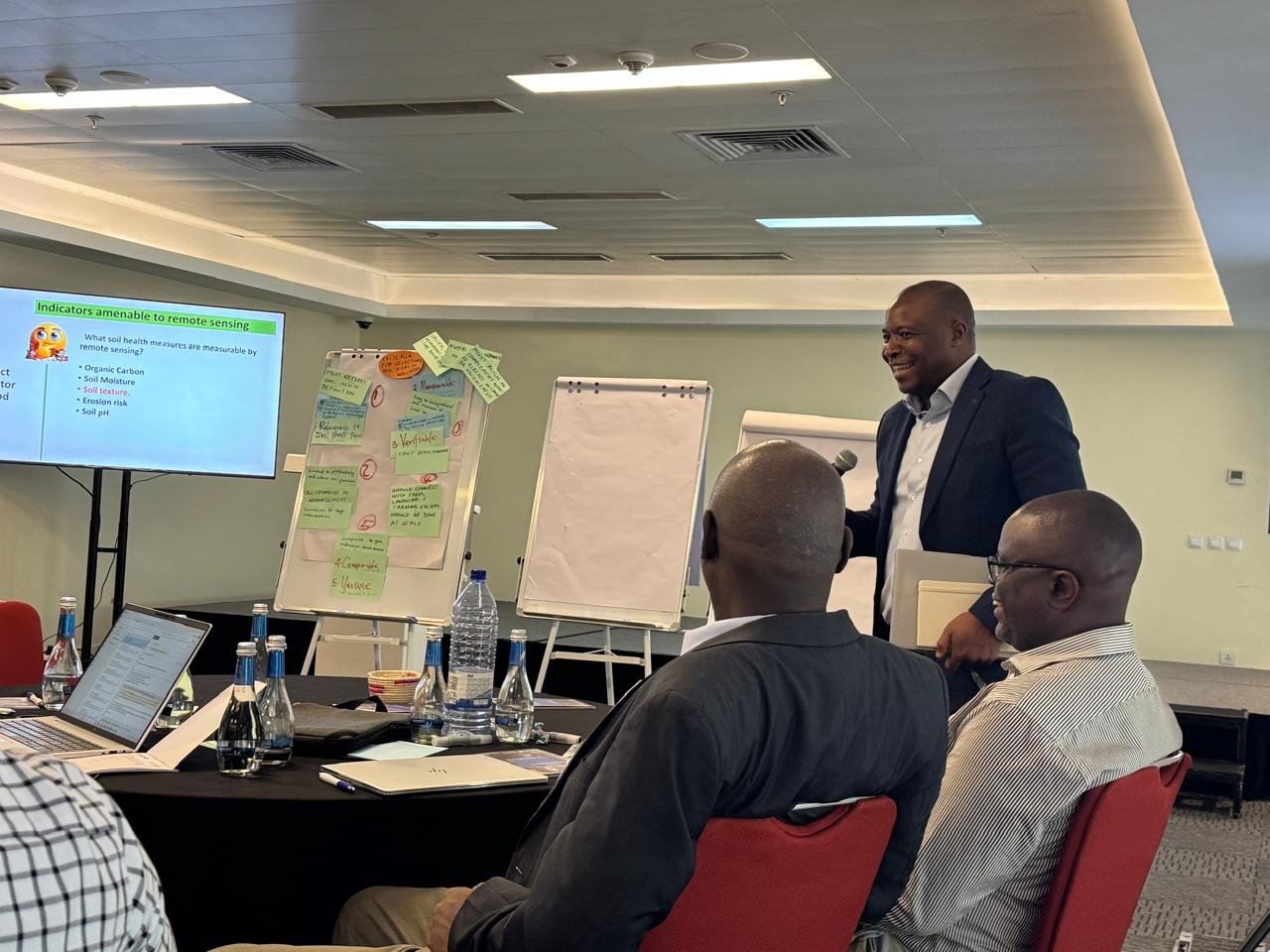CA4SH and CIFOR-ICRAF at CAADP Partnership Platform: Rooting agricultural transformation in healthy soil on the African continent
The African continent is primed for a major transformation. Strong political will, readiness from multistakeholder implementers, and scientific evidence are combining forces to address Africa’s integrated challenges of land degradation, climate change, food security and biodiversity loss over the next decade. Ahead of the new CAADP Strategy and Action Plan period (2026-2035), now is a critical time to take stock of where we are and what needs to happen to make the next ten years count for Africa’s future.
Across the African continent, nearly 65% of productive land is degraded, and 45% of land is affected by desertification. Soil degradation affects crop yields and undermines crop responsiveness to inputs, such as mineral and organic fertilizers and improved seed varieties, further increasing the vulnerability of smallholder farmers and rural communities to climate-related and economic shocks. Furthermore, healthy soil is the most biodiverse ecosystem on the planet, so soil degradation equals biodiversity loss. Enhancing soil health and strategically applying fertilizers and organic amendments are critical to the sustainability and resilience of African countries facing the effects of the climate crisis.
Scaling Soil Health Through Policy
On the 9th of May 2024, in Nairobi, Kenya, the African Heads of State and Government formally adopted the Africa Fertilizer and Soil Health (AFSH) Summit Declaration, also known as the Nairobi Declaration, during the AFSH Summit. Building from the priorities of the 2003 Maputo Declaration, the 2004 Sirte Declaration, the 2006 Abuja Declaration on Fertilizer for the African Green Revolution, and the 2014 Malabo Declaration, the AFSH Summit addressed the urgent need to improve soil health and enhance fertilizer utilization across the continent to boost agricultural productivity and alleviate hunger and poverty. Following the Nairobi Declaration in January 2025, the African Union adopted a ten-year strategy to transform Africa’s agri-food systems and enhance food security. The Comprehensive Africa Agriculture Development Programme (CAADP) (2026–2035), launched in Kampala, aims to build resilient and sustainable agri-food systems in Africa. Furthermore, the Kampala Declaration aims to expand the scope to include the entire food value chain, from production to consumption, anchored in sustainability, inclusivity, resilience and governance. There is now an opportunity to include soil health indicators in the CAADP Results Framework, creating a major accountability opportunity.
To address this, the African Union Development Agency (AUDA-NEPAD) and the African Union Commission have convened a Soil Health Monitoring Task Force to design and operationalize a systematic, scientifically sound monitoring system aligned with the CAADP Biennial Review (BR) process.
Ahead of the CAADP Partnership Platform (CAADP PP), which took place in Kigali, Rwanda, from 29-31 October 2025, AGRA supported the convening of the Task Force meeting on 27 and 28 October. The validation meeting provided a platform for the Task Force to present its work on building a soil health monitoring system in support of the AFSH Action Plan, including identifying key indicators and a relevant soil health definition. Members of the Task Force and the broader AFSH stakeholder group attended and provided feedback through several participatory workshop sessions.

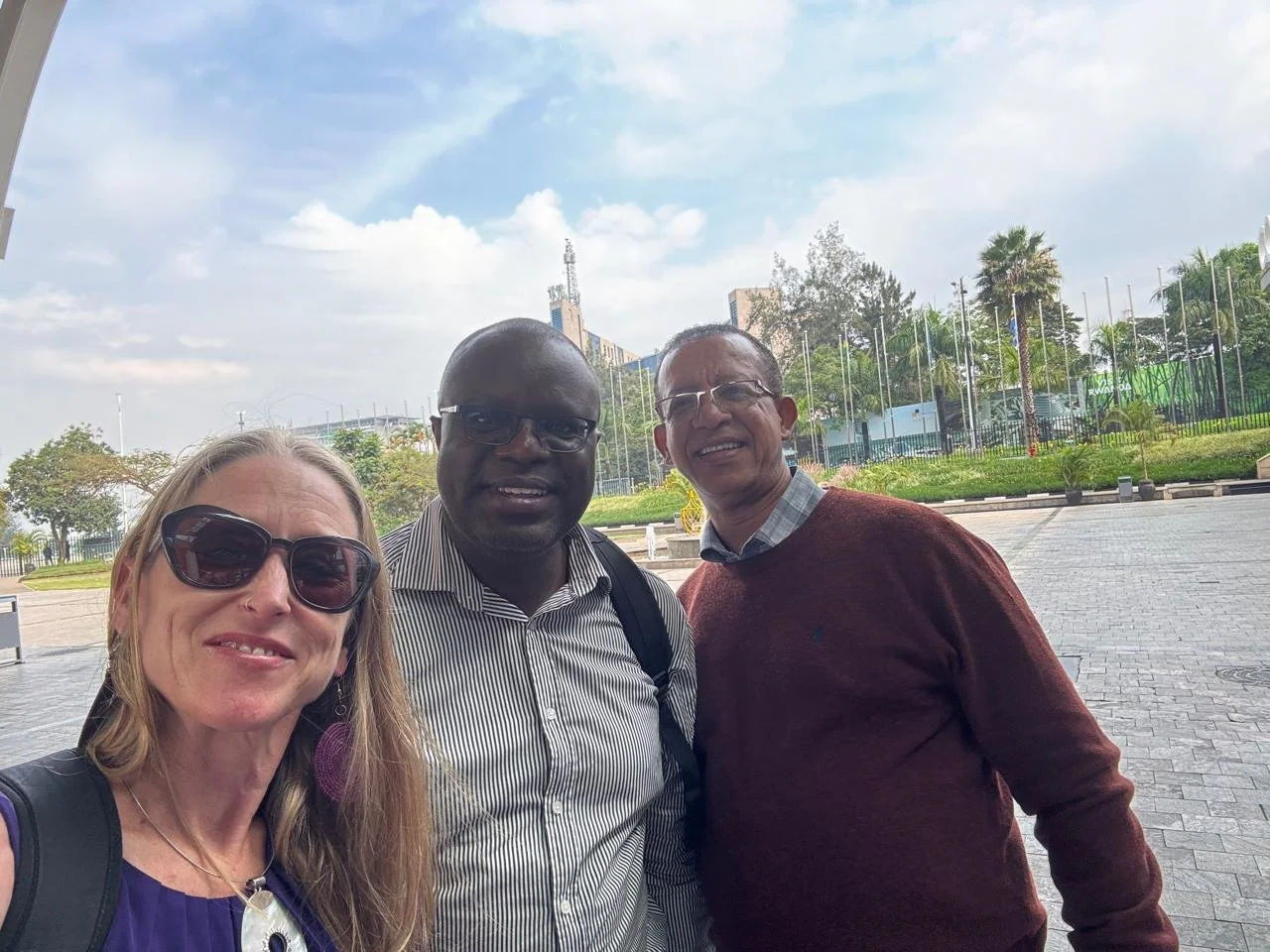
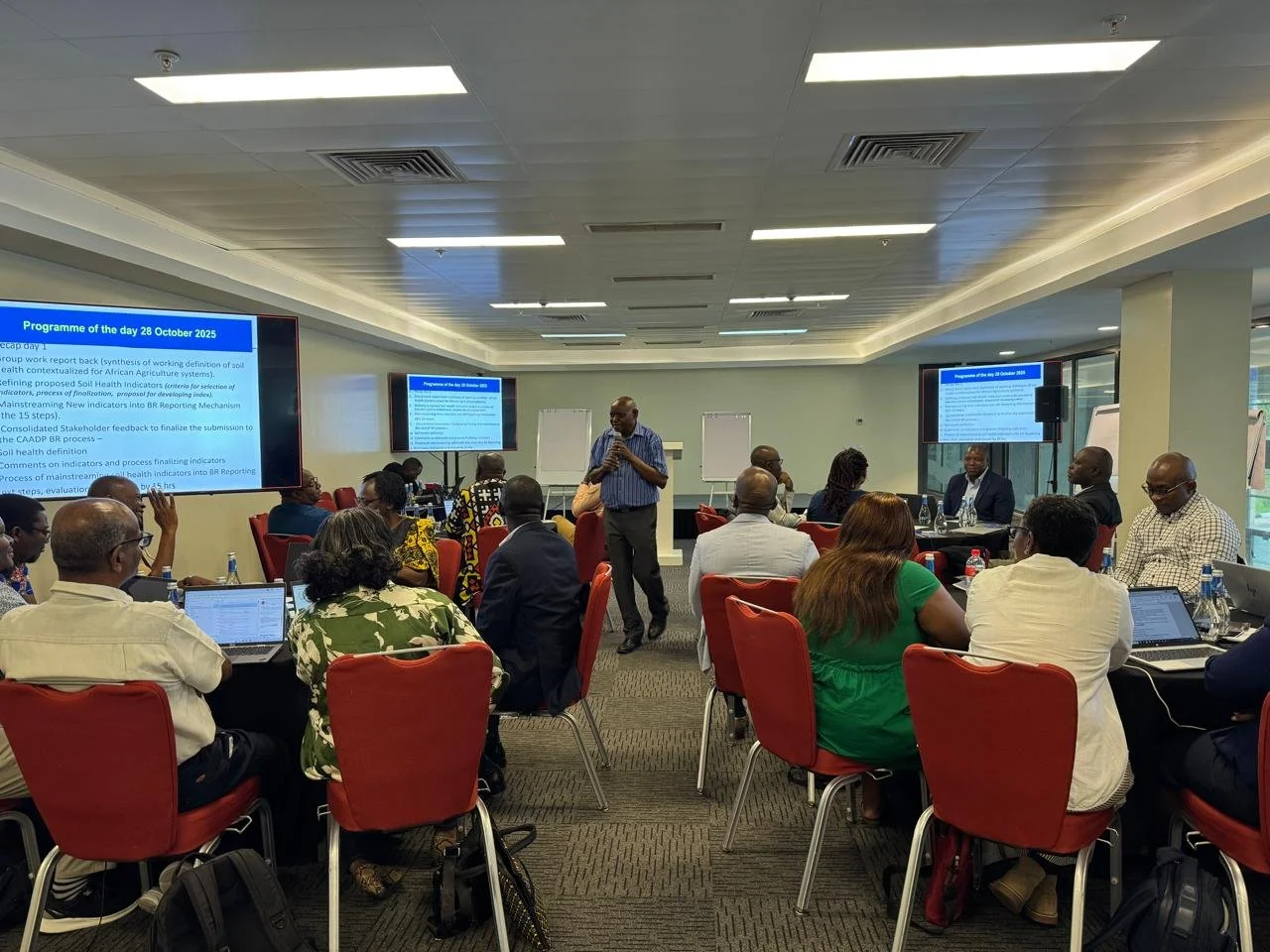
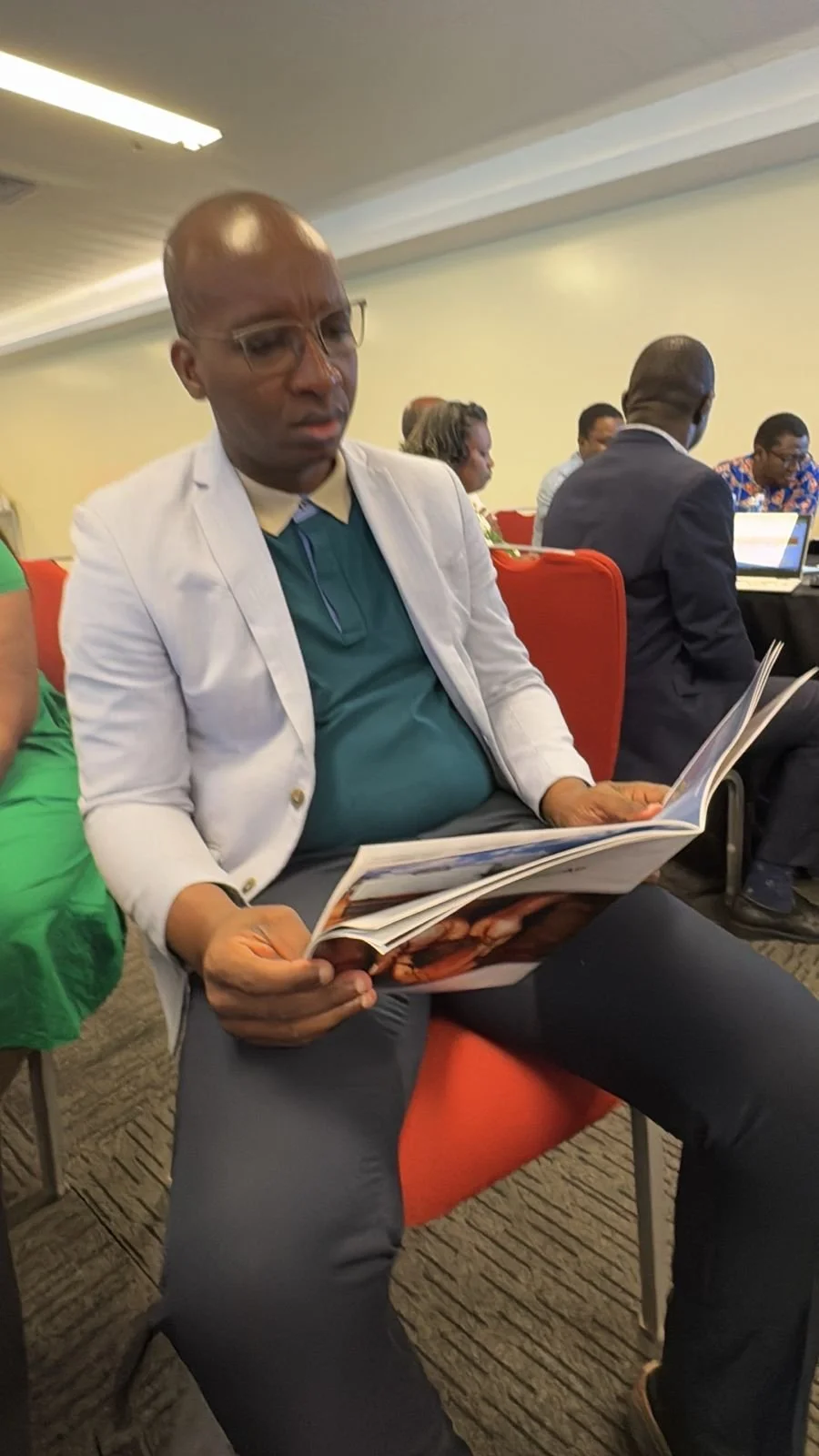
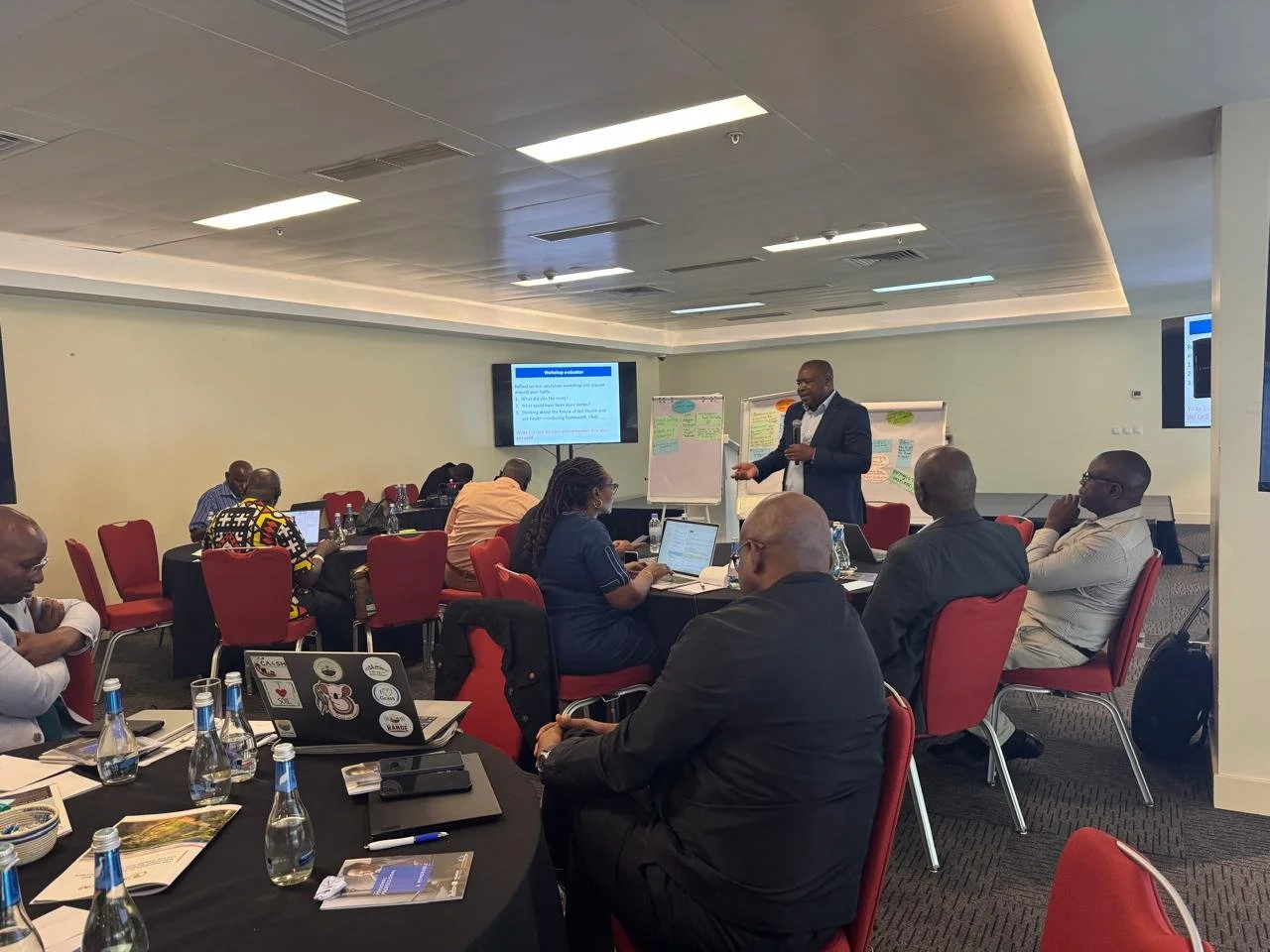
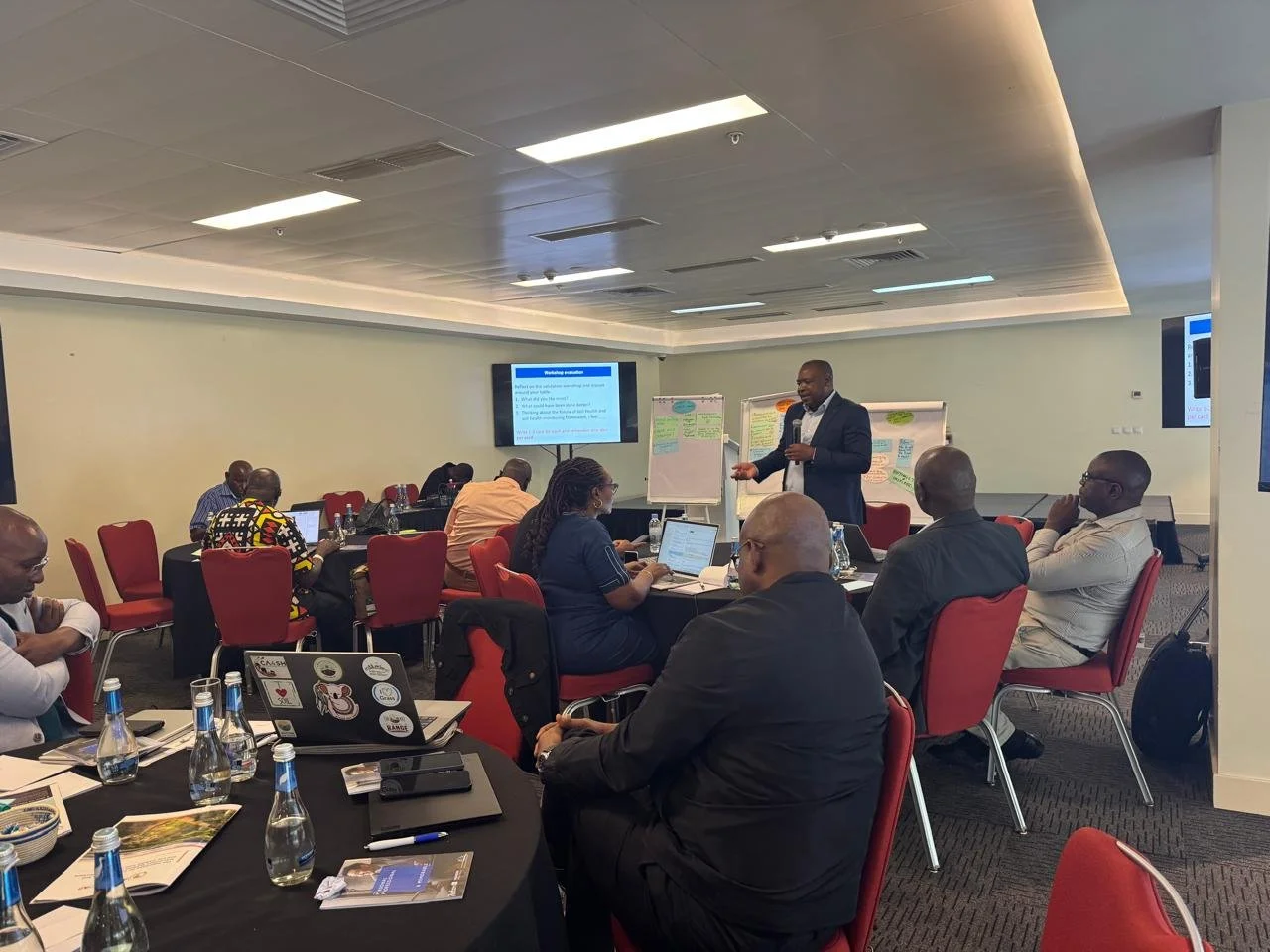
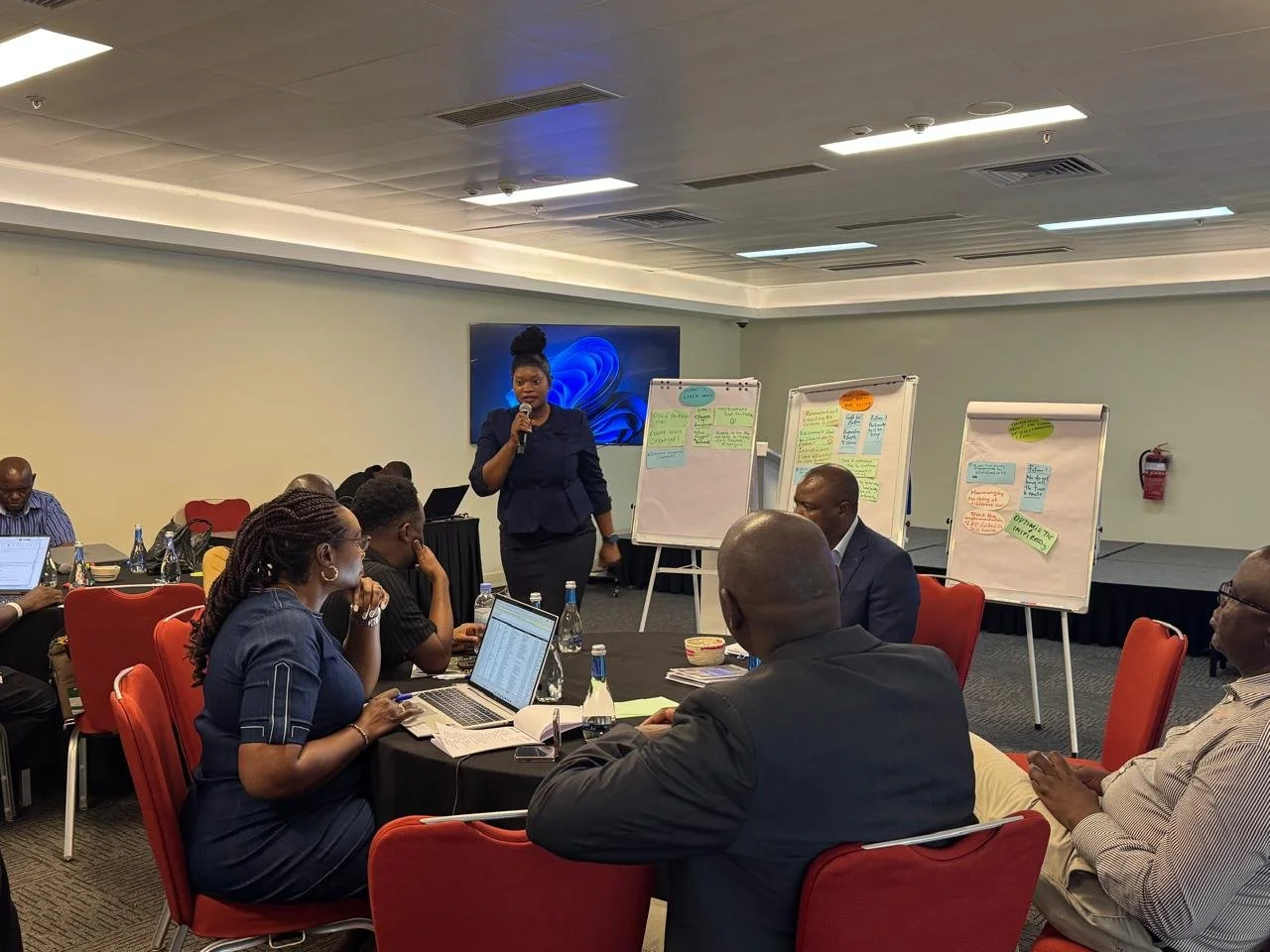


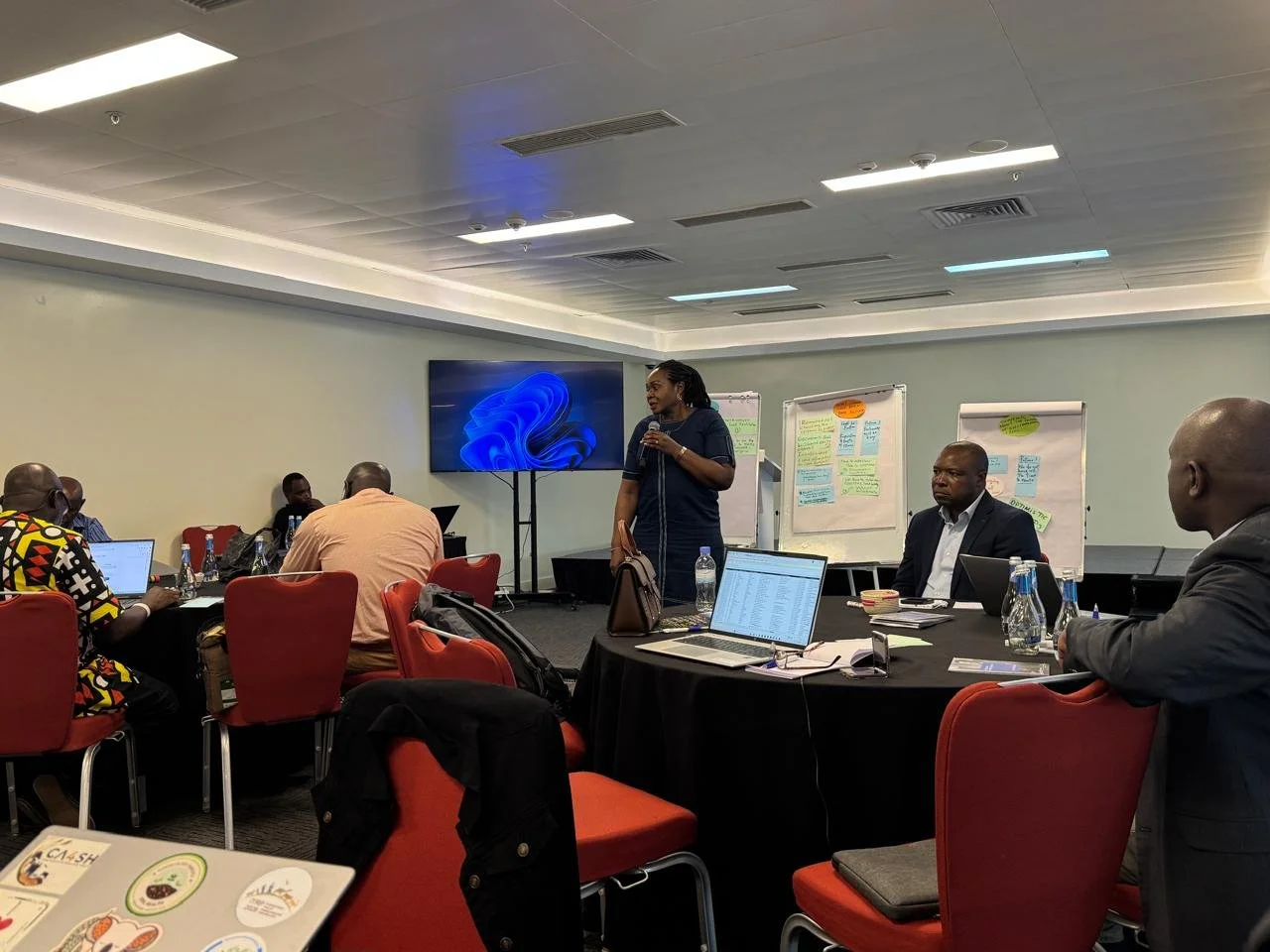


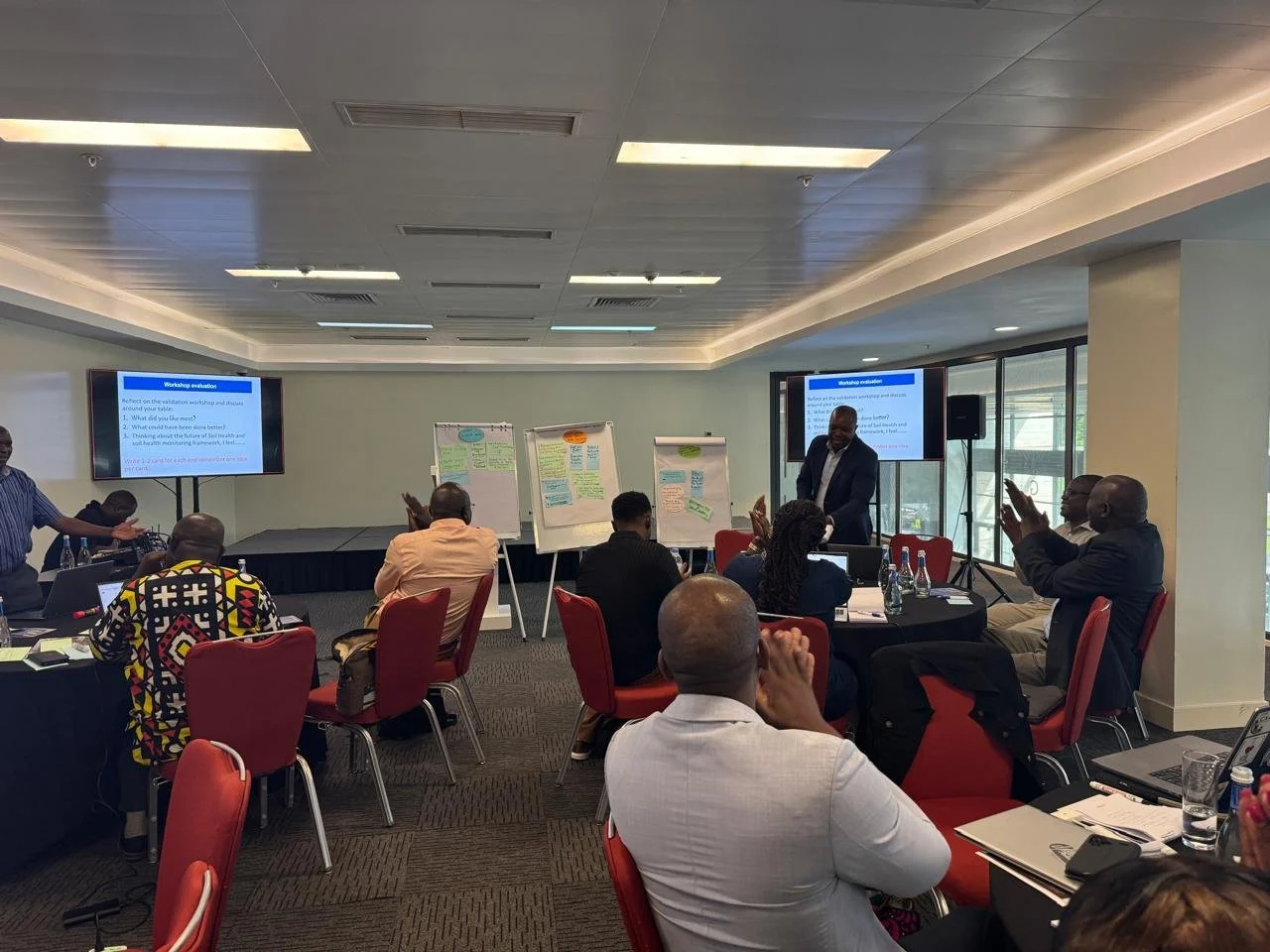
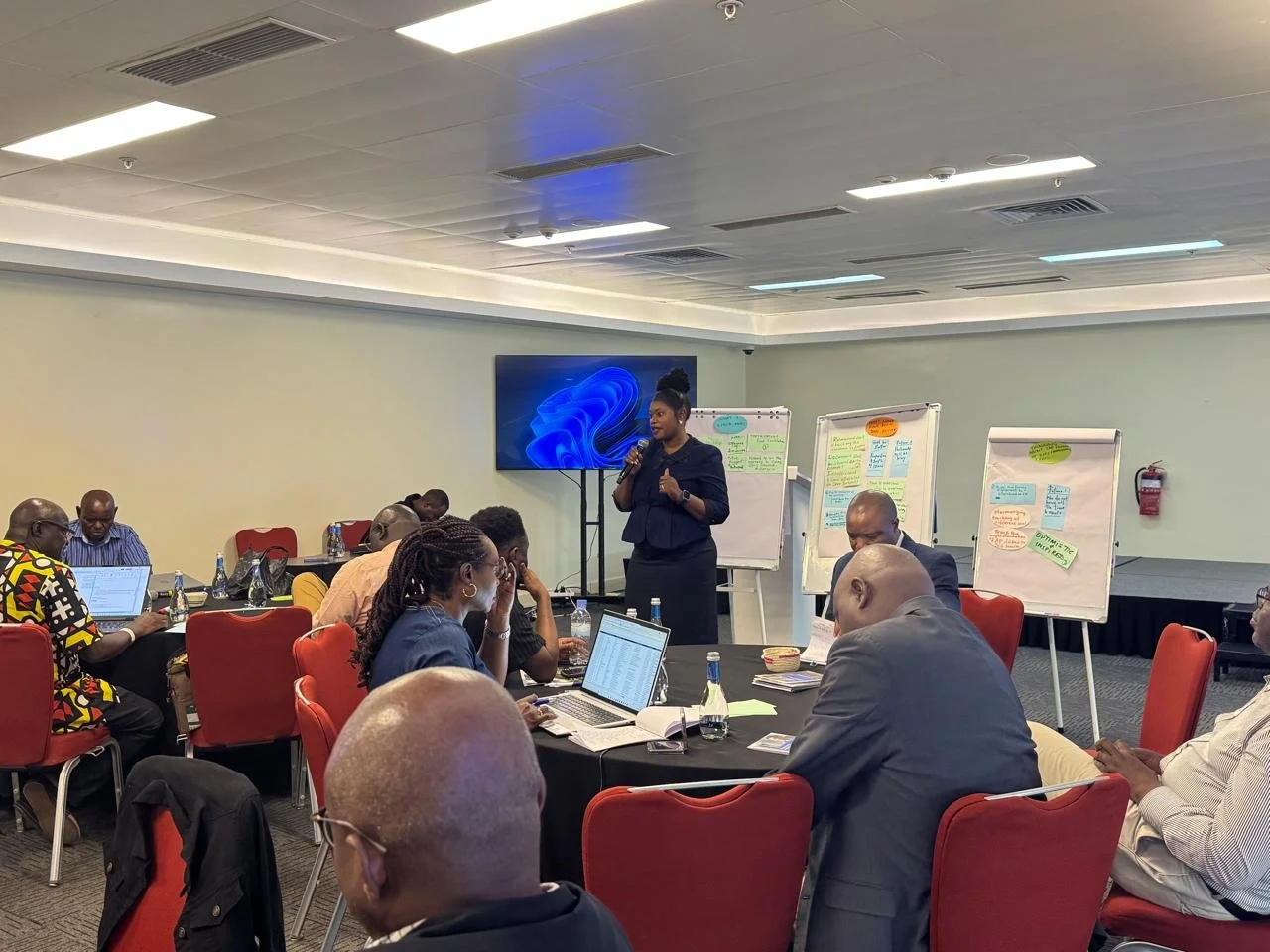
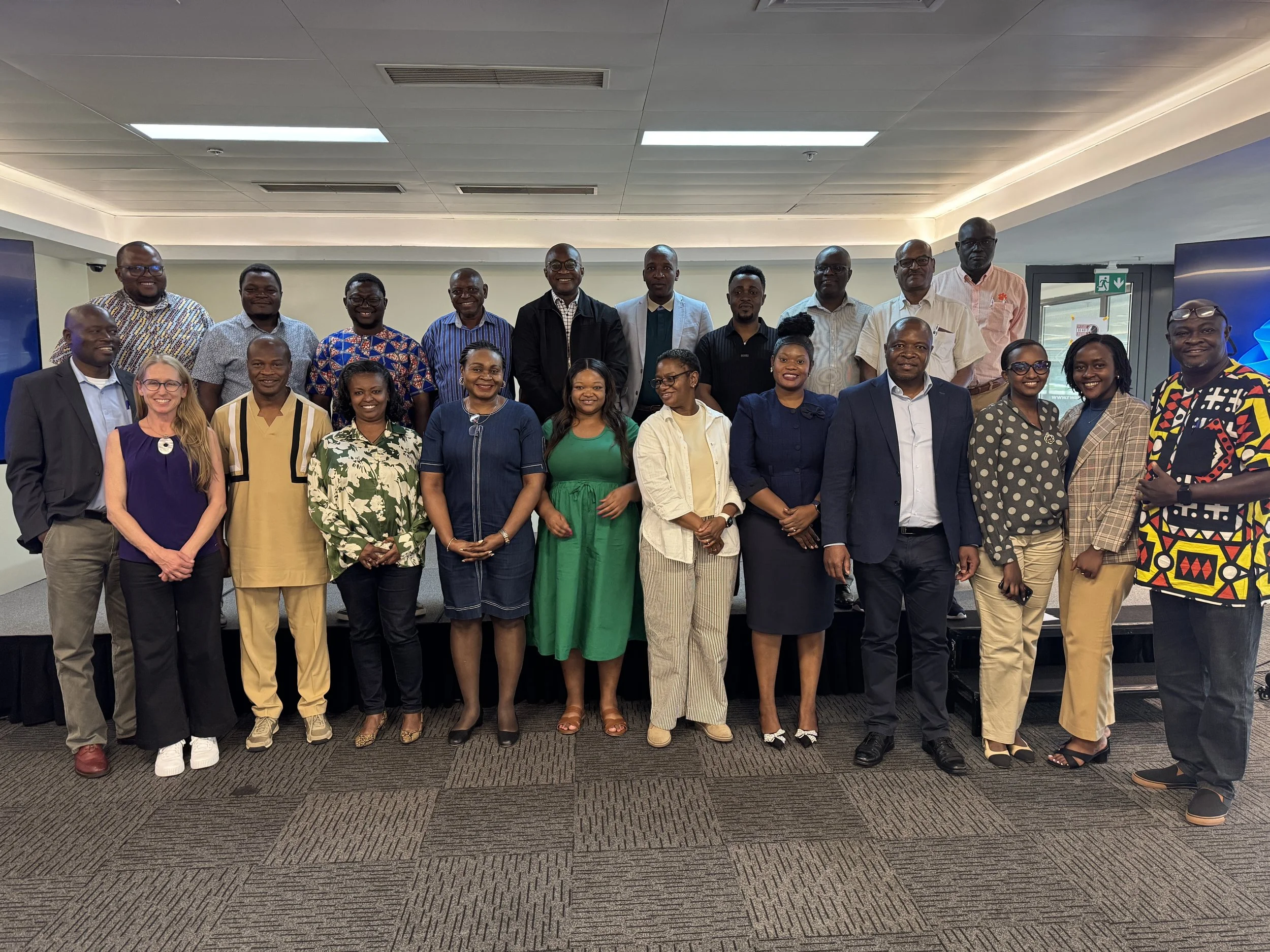
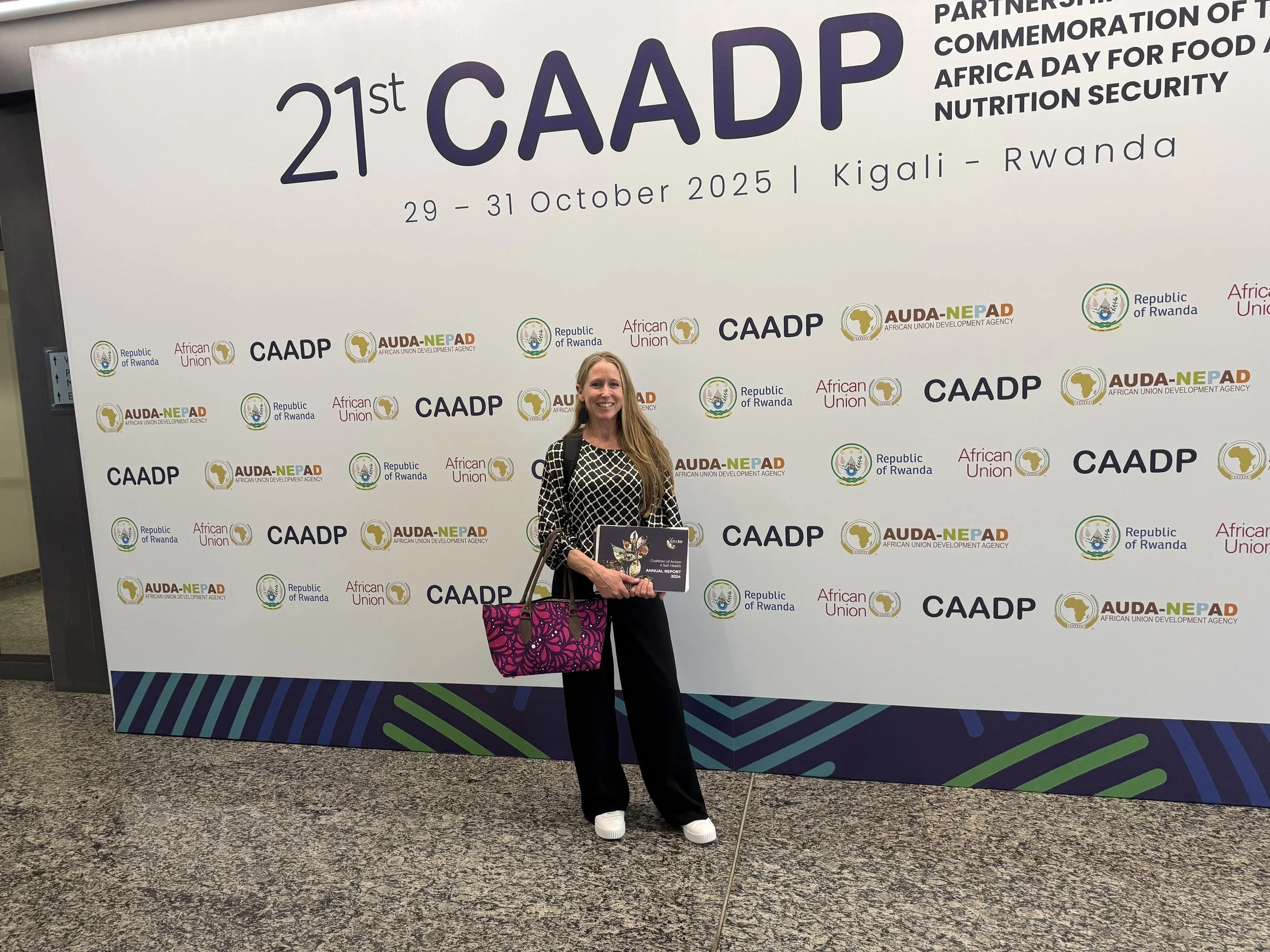

The main objectives of the meeting were to: 1) Provide an update on the progress of the Task Force; 2) Identify the criteria for selecting key indicators to be included in the BR; 3) identify the process to formalize soil health indicators in the reporting; 4) Develop a process to gather information on the state of soil health information of each of the 55 member states; and 5) agree on the key elements to be included in the system (pictured below). The Task Force is co-chaired by Leigh Winowiecki (Soil and Land Health Research Theme Lead for CIFOR-ICRAF and Co-Lead of the Coalition of Action for Soil Health [CA4SH]). Potia Phohlo of Trace and Save and Bernard VanLauwe, DDG-R of IITA. In addition, the Task Force brings together experts from IRRI, IFDC, CCARDESA, GIZ, CRS, FARA, CIMMYT, APNI, AGRA, CGIAR, ANAPRI, C4PA, AFAP, ISRA, and the Extension Coalition.
Dr. Winowiecki stressed the need for SMART indicators (Specific, Measurable, Attainable, Relevant, and Time-bound) and to build on existing monitoring frameworks that have been operationalized across the continent, such as the Land Degradation Surveillance Framework (LDSF): https://ldsf.thegrit.earth/
Figure from the AUDA-NEPAD, CA4SH, Norad and AICCRA Guidance Note on Advancing Africa's Soil Health Monitoring to Support the Nairobi Declaration and CAADP Kampala Agenda
One of the many exciting outcomes from the meeting included alignment on a continental definition of soil health that is reflective of the African context. Specifically, the Soil Health Task Force wanted to emphasize that the definition should prioritize the resilience of soil to environmental and climate shocks, a major concern for livelihood and environmental sustainability on the continent.
Janet Edeme, Head, Rural Development Division Ag. Head, Agriculture and Food Security Division of the AUC, presented on the first day on the key features of CAADP and the urgent need to integrate soil health in the BR process (see below). After that, the full first day was focused on group work and discussion around the soil health definition.
On the second day, Yemisrach Aseffa from AUC, provided practical guidance on the 15 steps to mainstream new (soil health) indicators into the BR reporting, including insights such as is baseline already established, Can the data be collected within the timelines of the fourth BR cycle and the need to prepare the technical guideline in the BR technical guidelines format that describes the indicator (see below).
Dr Manyewu Mutamba (AUDA-NEPAD) addresses the Task Force
Dr. Winowiecki emphasized that this is a huge opportunity for soil health and the soil science community to have soil health formally recognized as a critical component to food systems transformation.
Manyewu Mutamba of AUDA-NEPAD closed the workshop, providing motivational remarks and sincere appreciation to the Task Force for their dedication and knowledge.
Implementing soil health in CAADP: Linking soil health monitoring to implementation
At the CAADP PP proper, AUDA-NEPAD, the AUC, GIZ, CIFOR-ICRAF, Coalition of Action 4 Soil Health (CA4SH), Norway and NORAD convened a side event aimed at incentivizing investment into generating robust data on the impact of land management on soil health over time. This session highlighted progress from the Monitoring Task Force, including the takeaways from the preceding Validation Meeting, advances in soil health monitoring, and on-the-ground progress to scale soil health solutions.
"[This session will help us] to have a better understanding of how the Nairobi declaration and the commitment to develop and implement Africa Fertilizer and Soil Health Action Plans are coming together with the commitments under the CAADP Kampala Declaration," explained Moderator, Sophia Baumert (GIZ-Kenya). The goal is "to make sure how can we bring those two declarations together and what tools in terms of framework do we need." In his opening remarks, Odd Arnesen (Regional Food Security Envoy for Norway in Africa) reinforced the objectives, remarking that the Nairobi Declaration and the Kampala Declarations "have similar targets overall targets," so working with synergy in mind is key.
Soil health monitoring is vital to achieving the continental agendas for a number of reasons. For example, the data gathered are crucial to guide decisions on implementation, financing and policy. These data need to be shared in an accessible format to inform decision-making. Presenter Elvis Weullow (Senior Laboratory Enterprise Manager, CIFOR-ICRAF) shared advancements in soil health monitoring technology through the Land Degradation Surveillance Framework (LDSF), a systematic monitoring system that combines remote sensing, predictive modelling, rigorous field-based sampling, and citizen science through the Regreening App. The CIFOR-ICRAF soil spectroscopy lab then processes samples at 80% less the typical cost, meaning that technological advancements have made monitoring more affordable while also being more effective and robust. “It also provides an opportunity for researchers to analyze thousands of soil samples and help better refine and do targeted interventions, restorations, and investments required,” he shared.
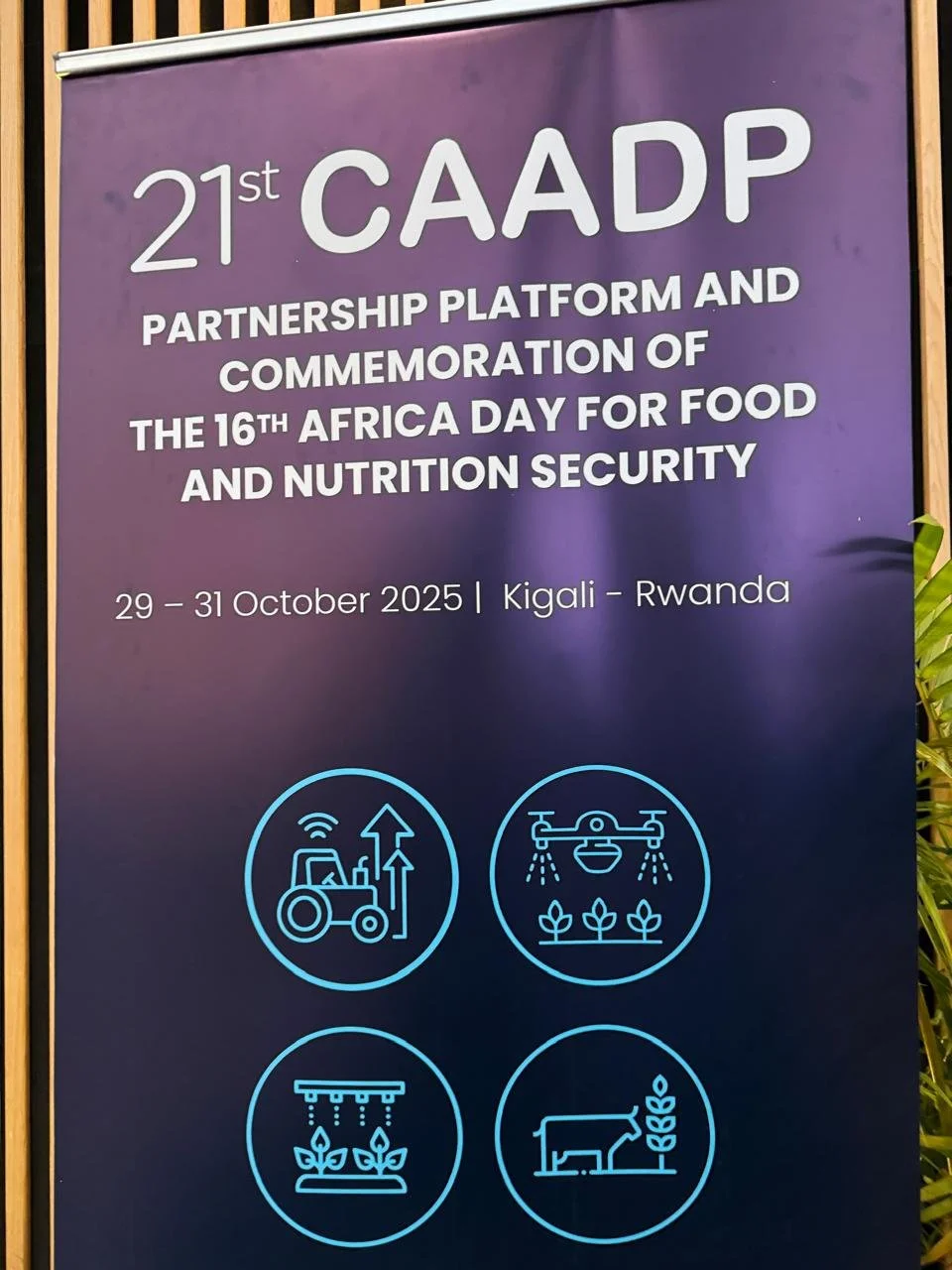
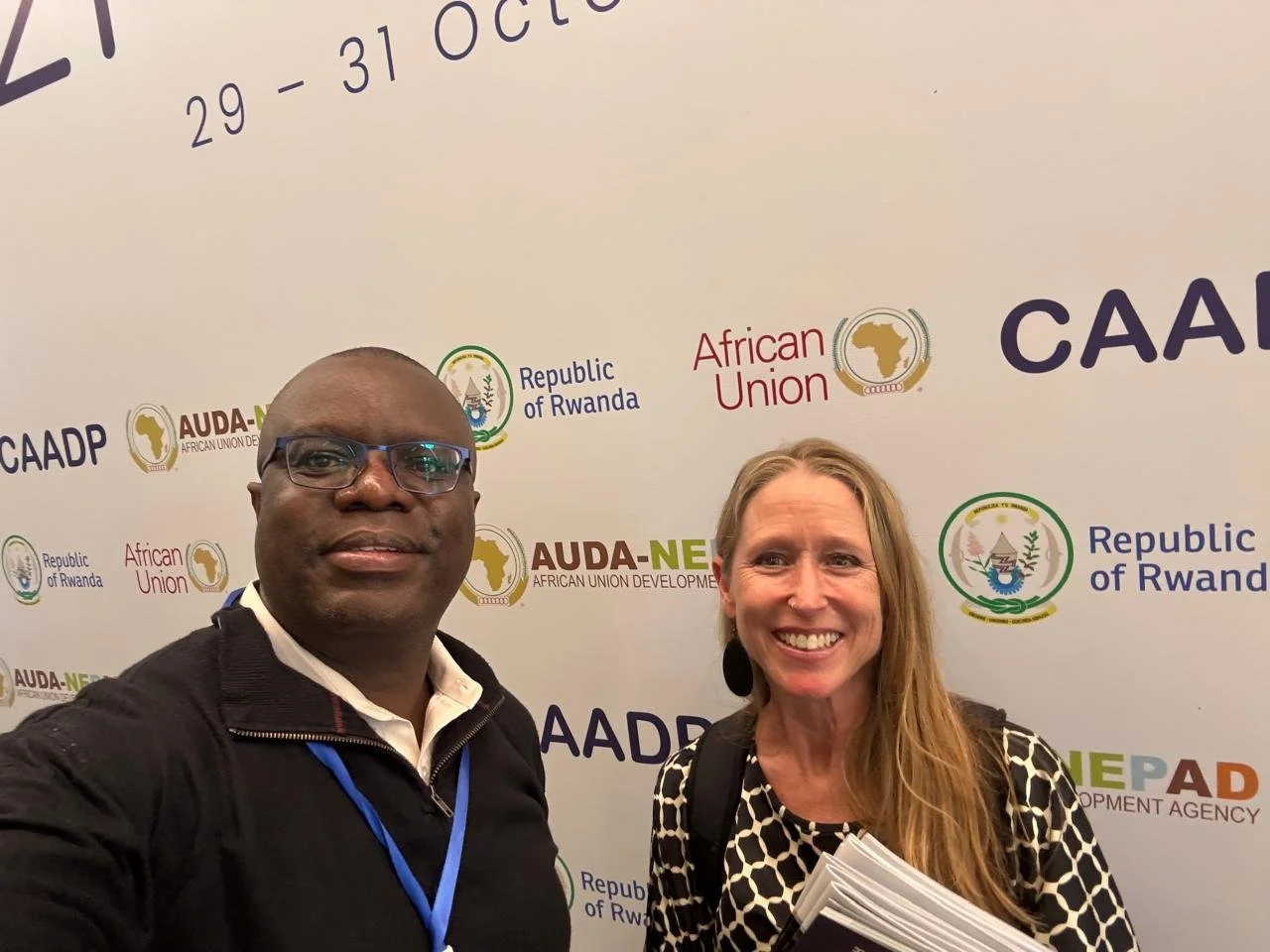
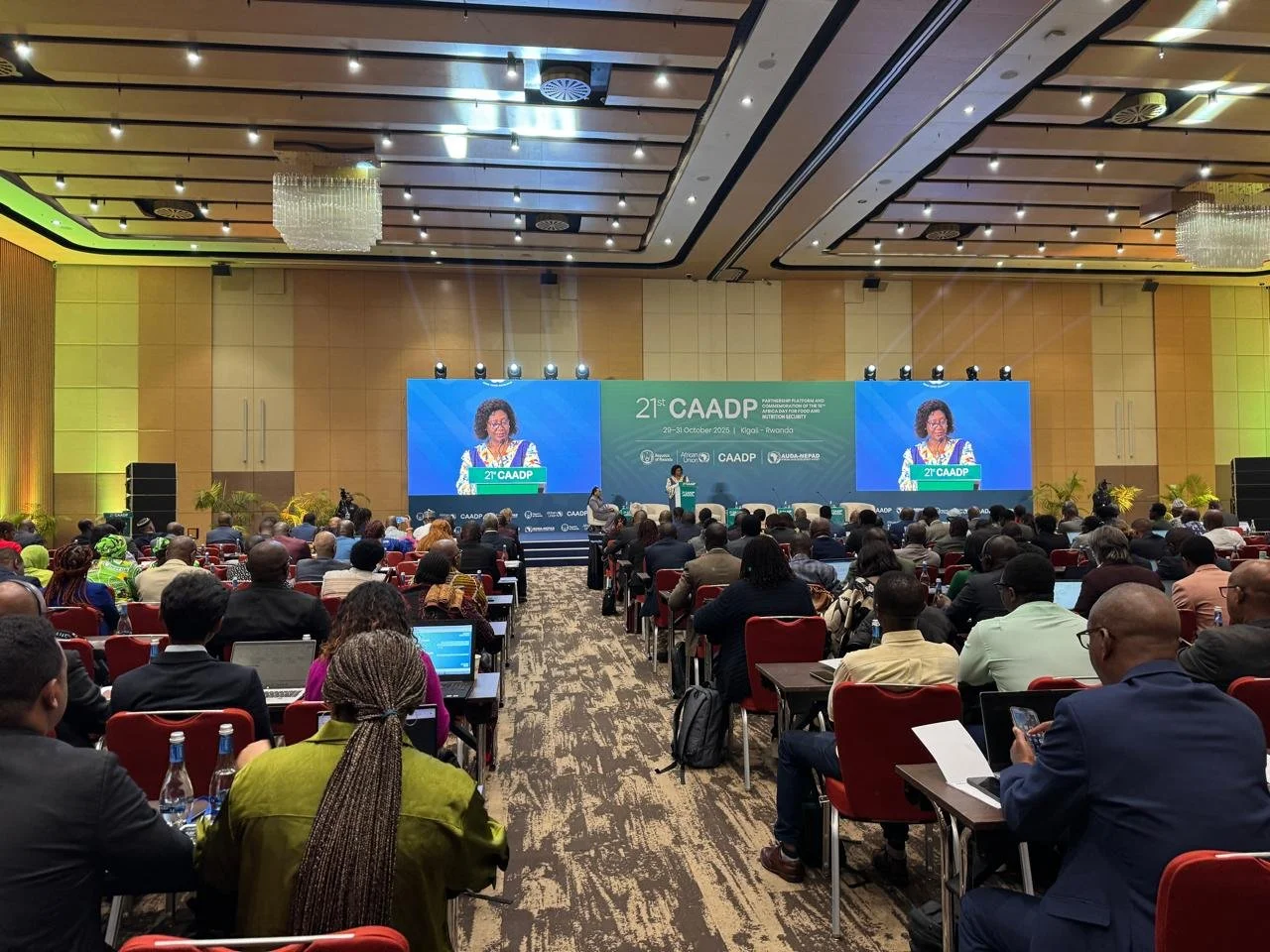


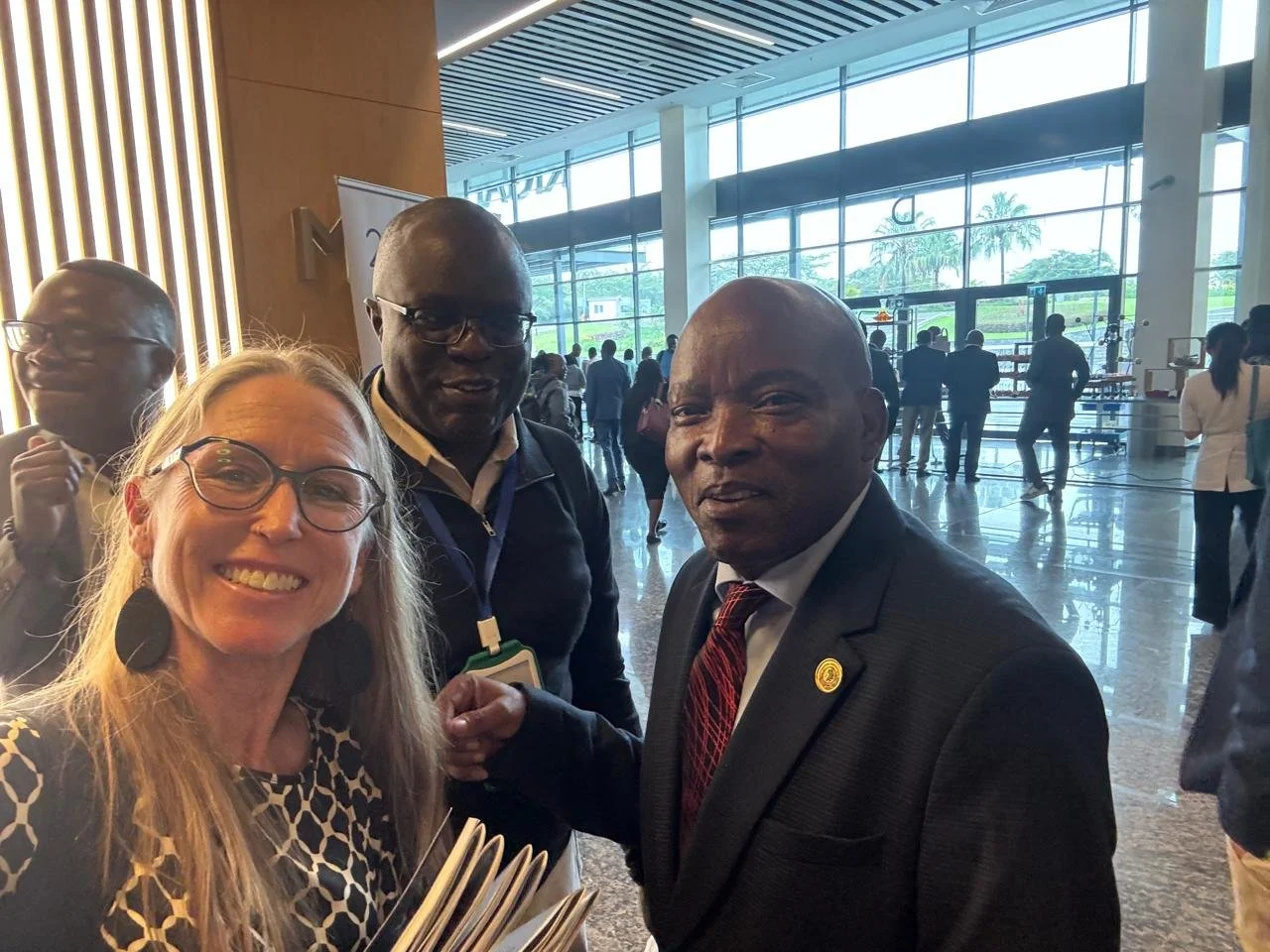
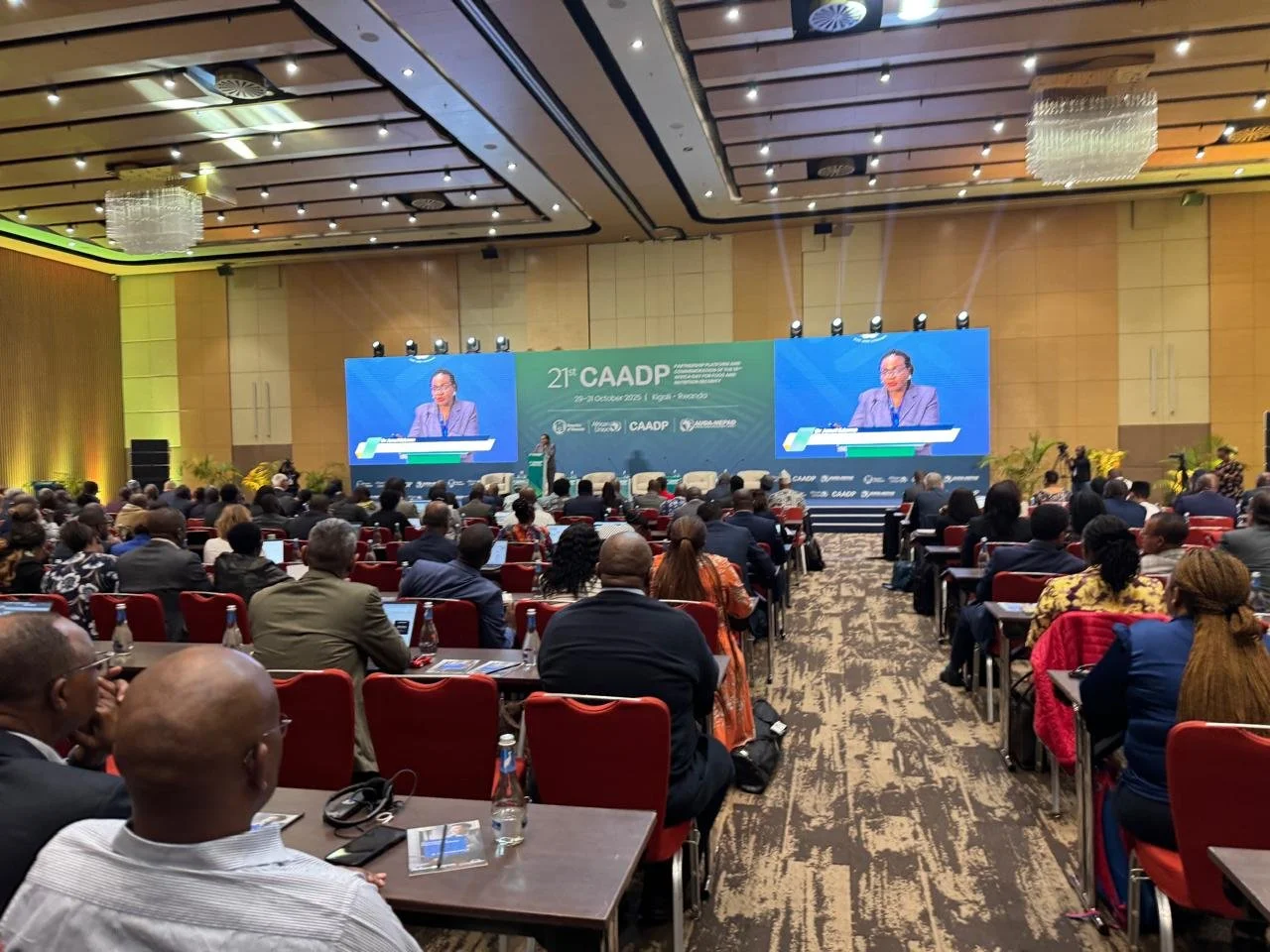
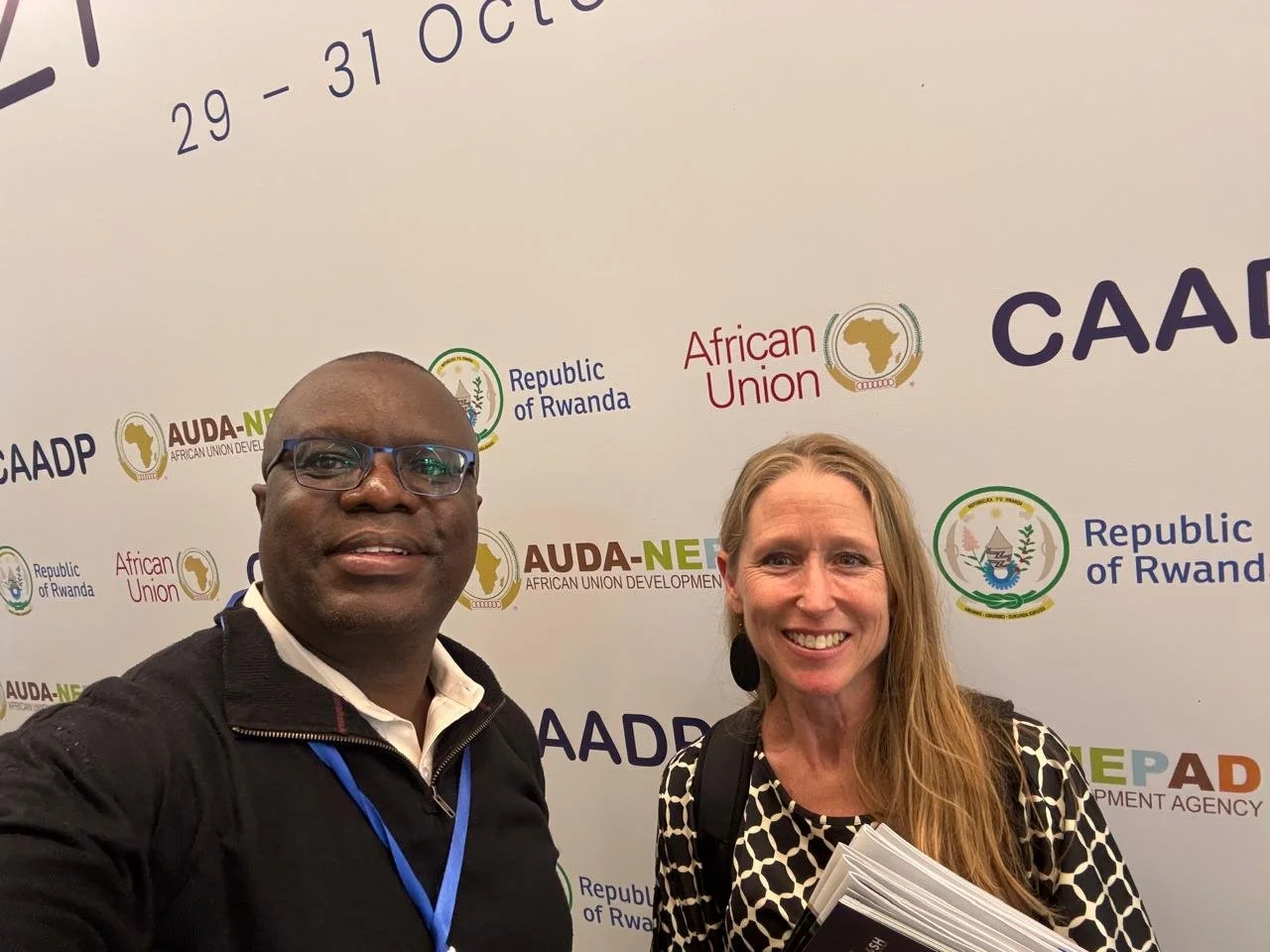
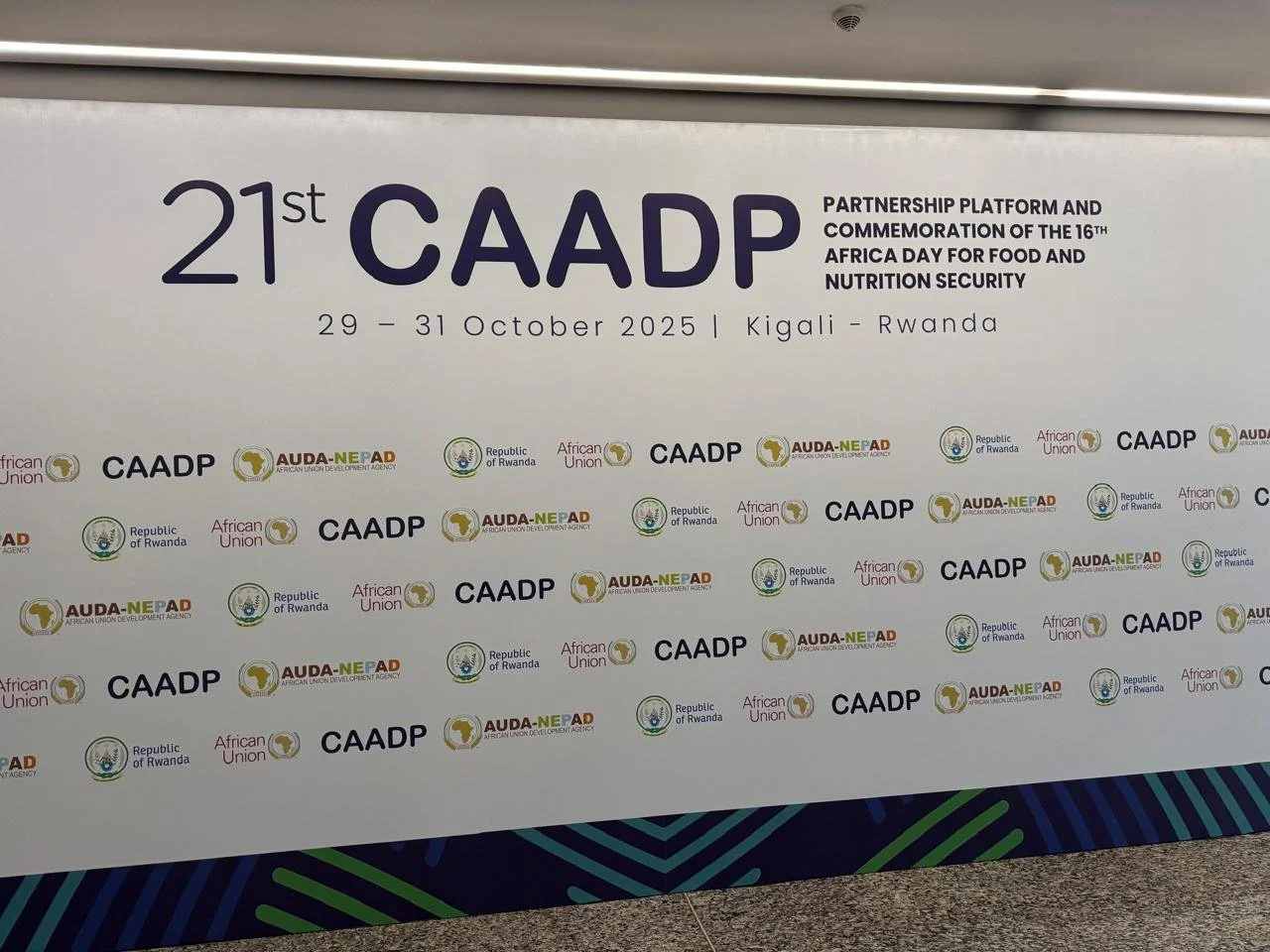
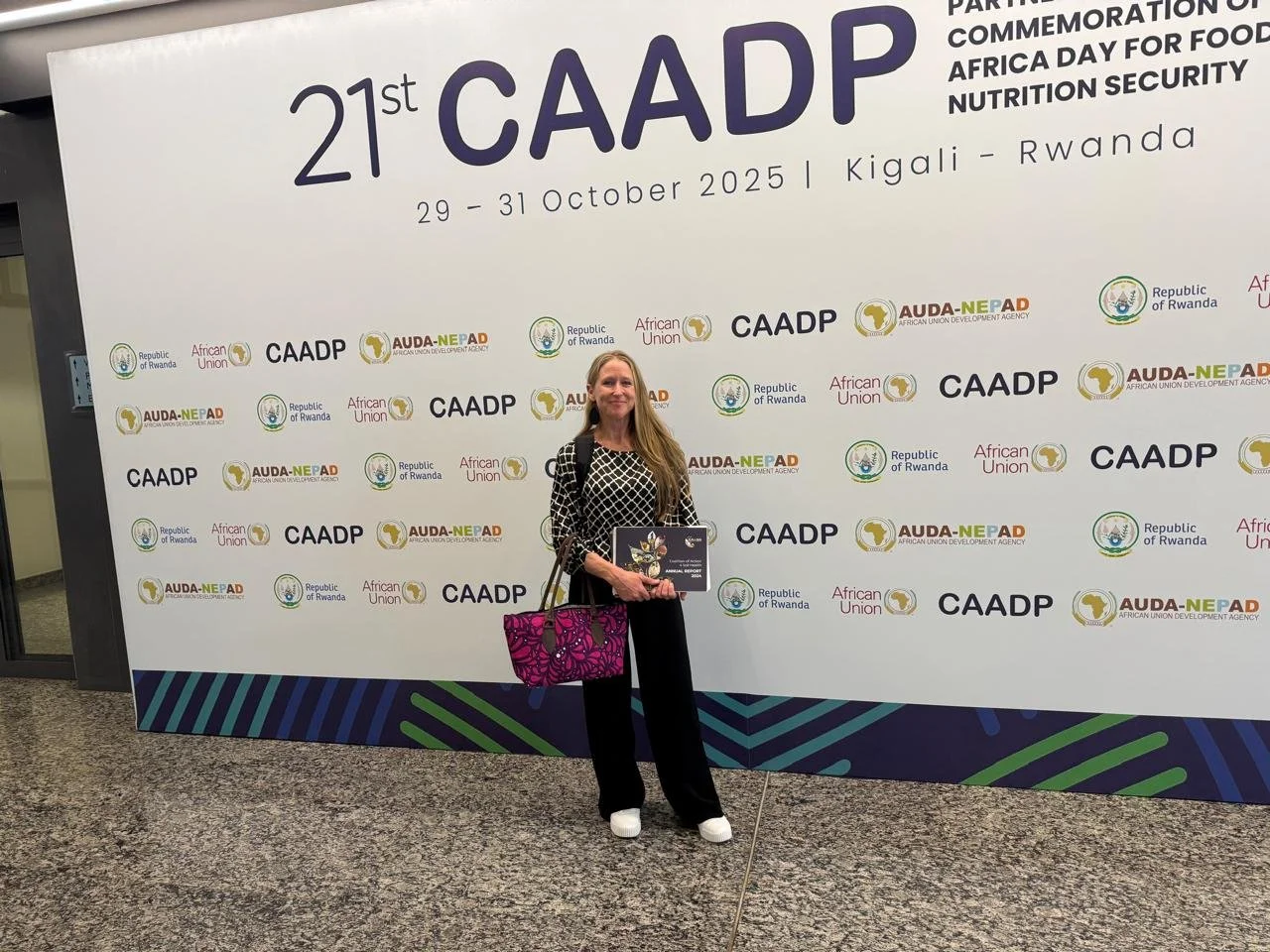
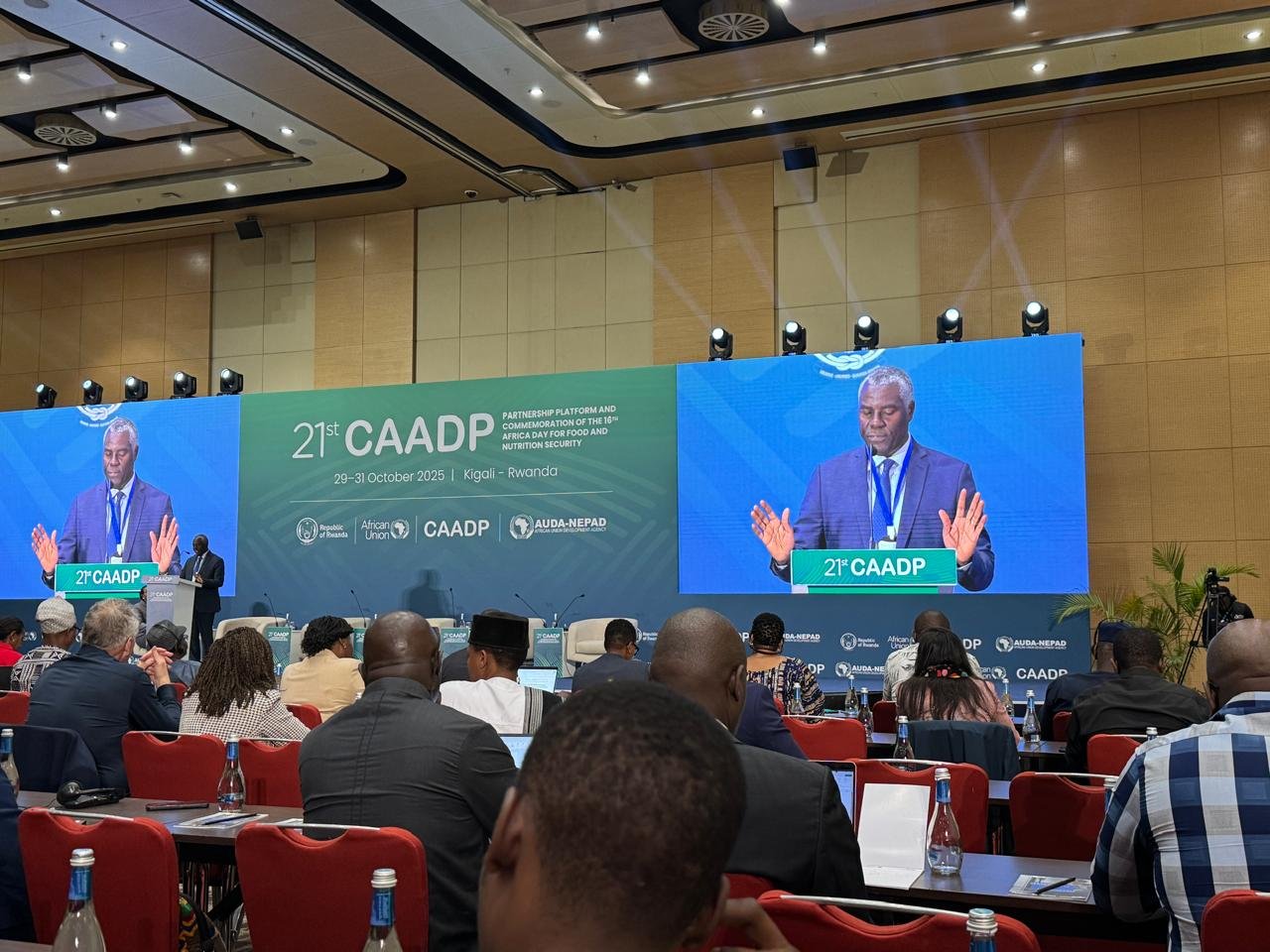
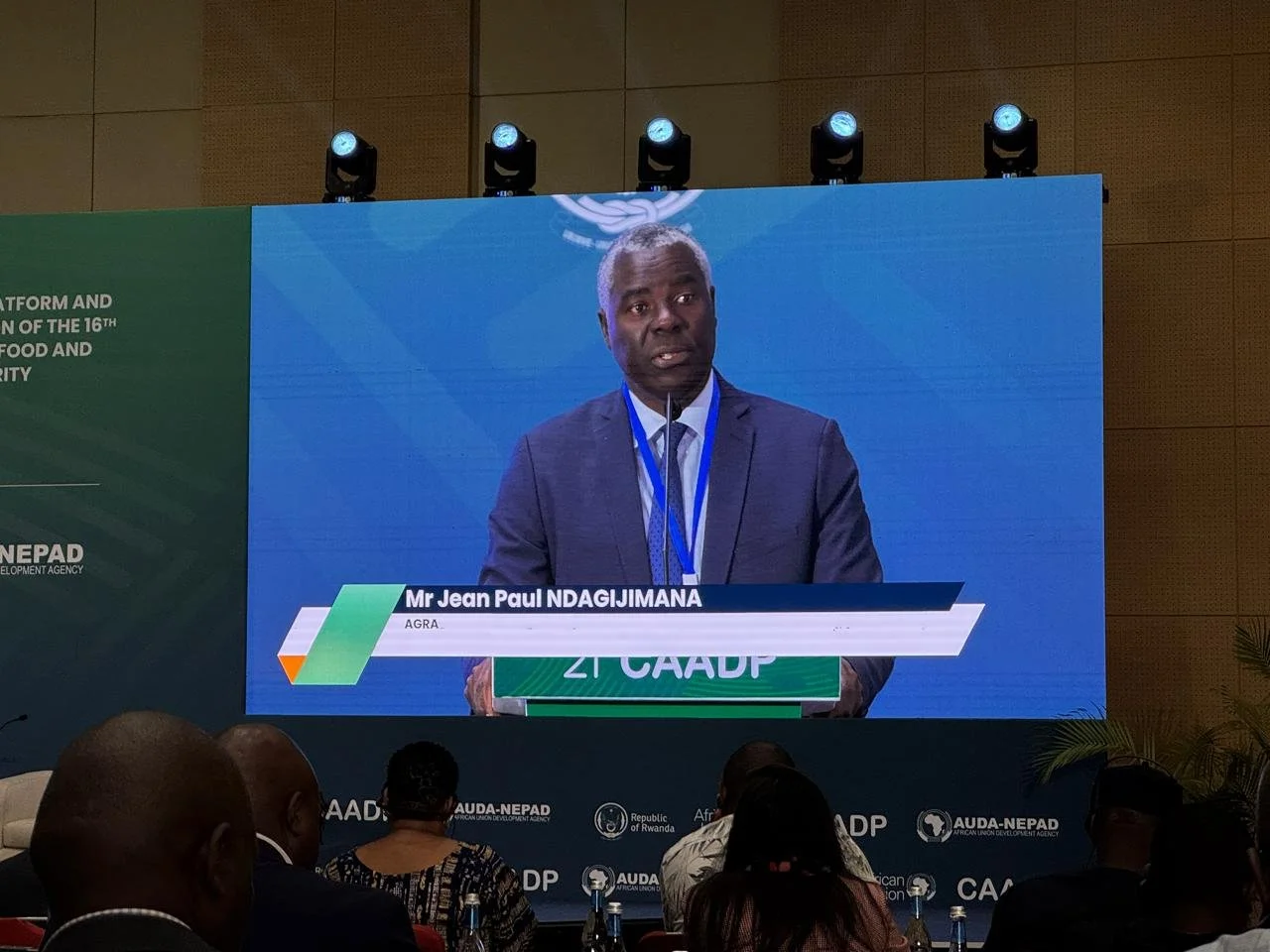

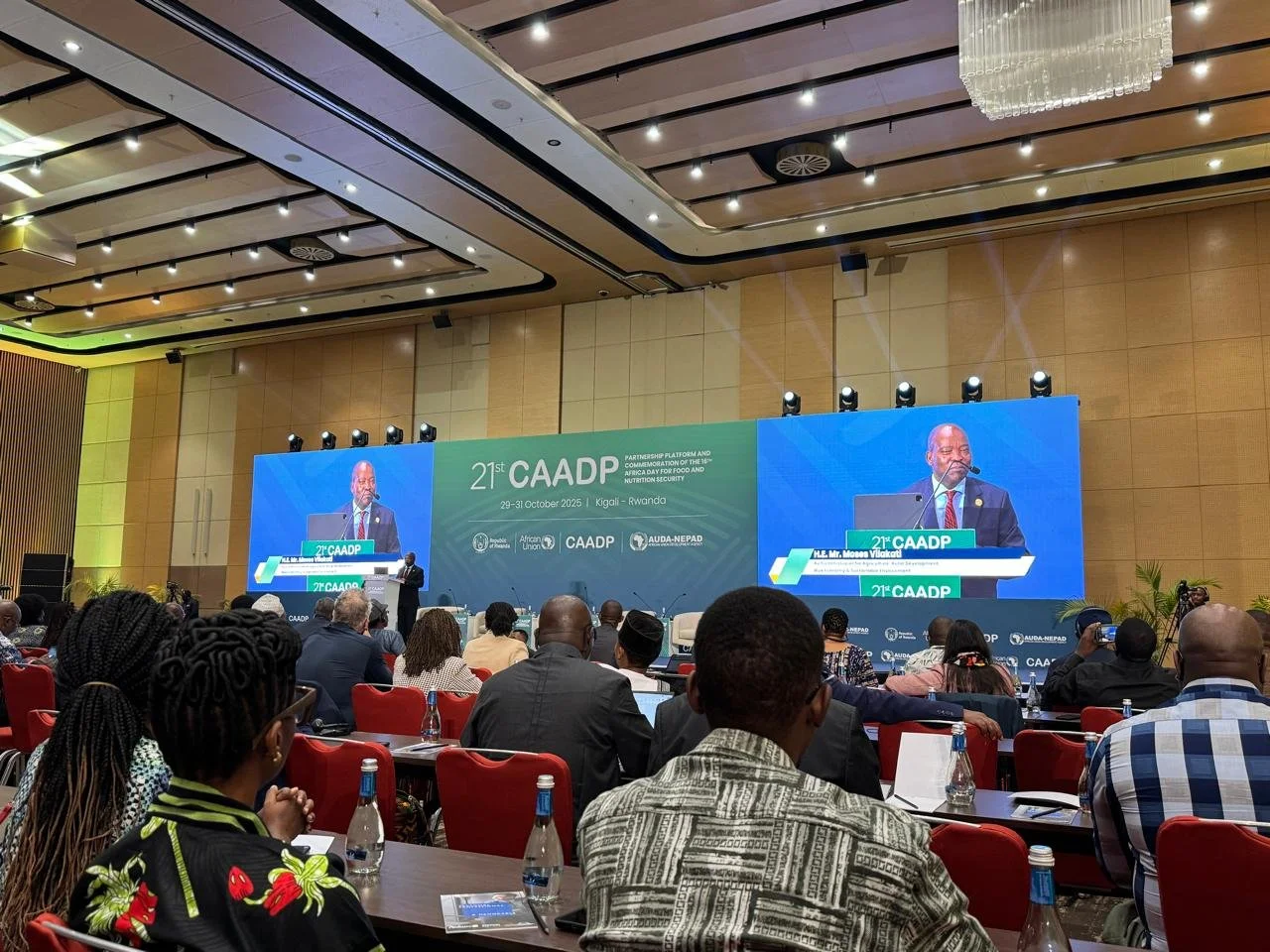
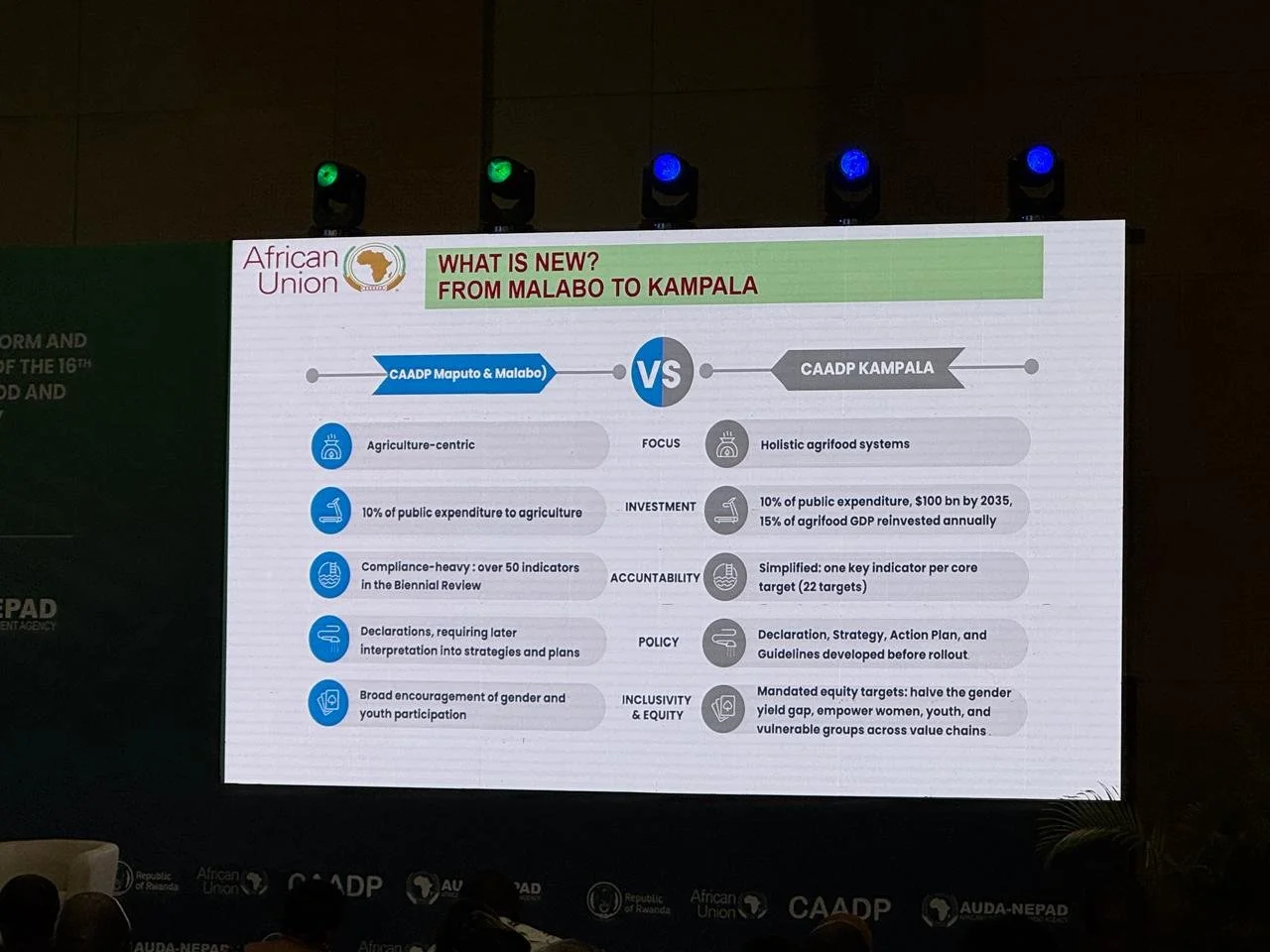

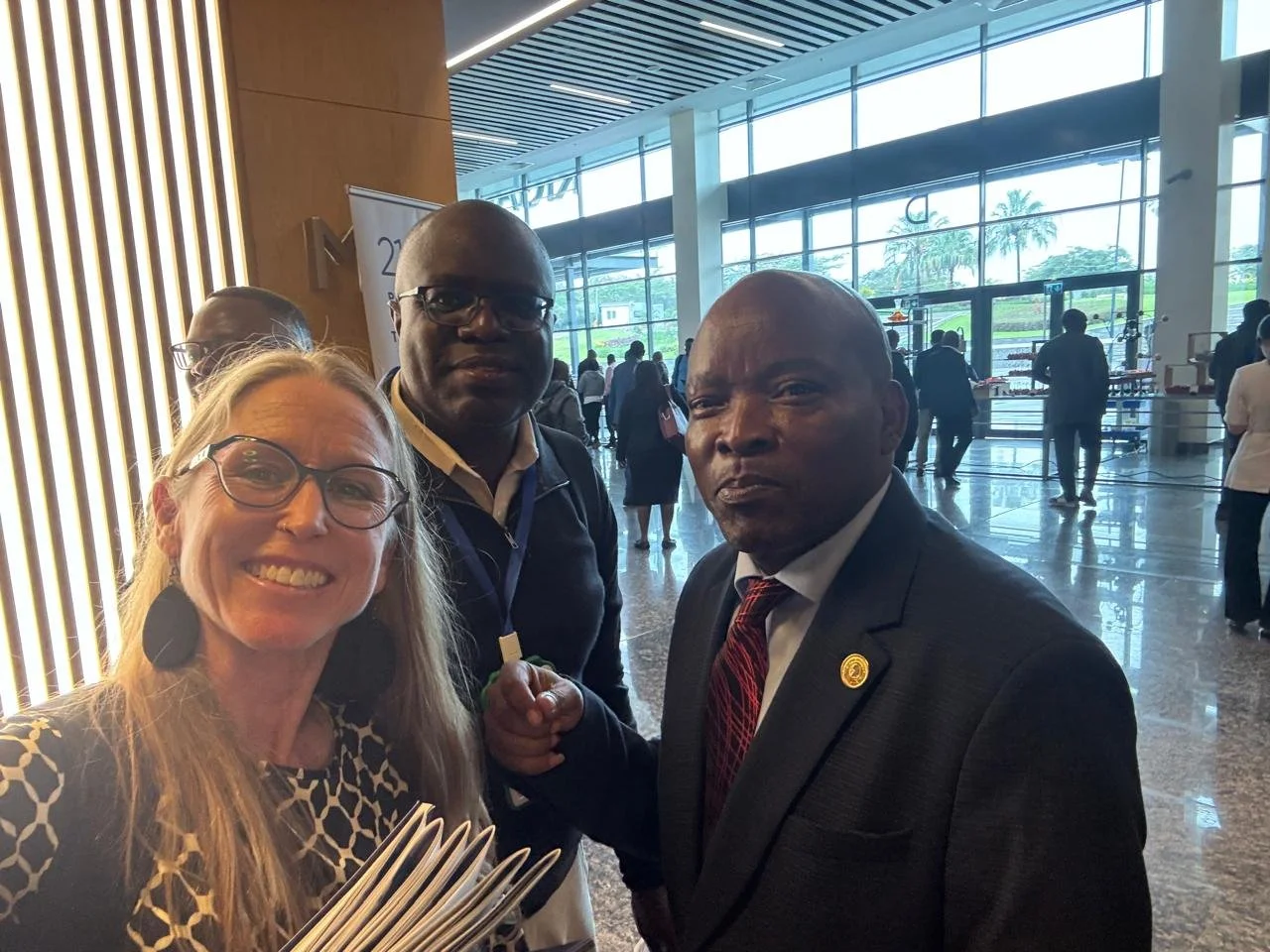
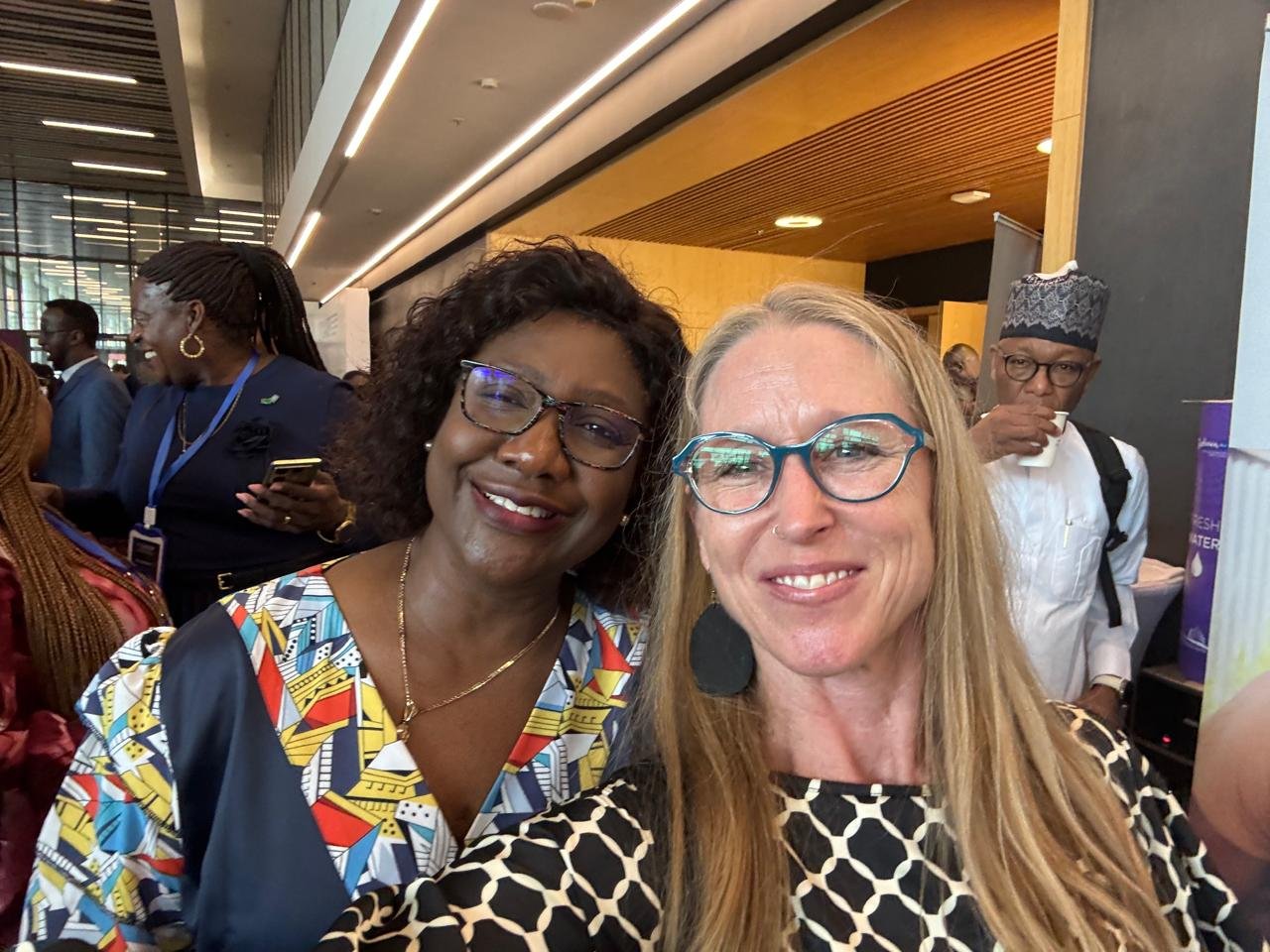
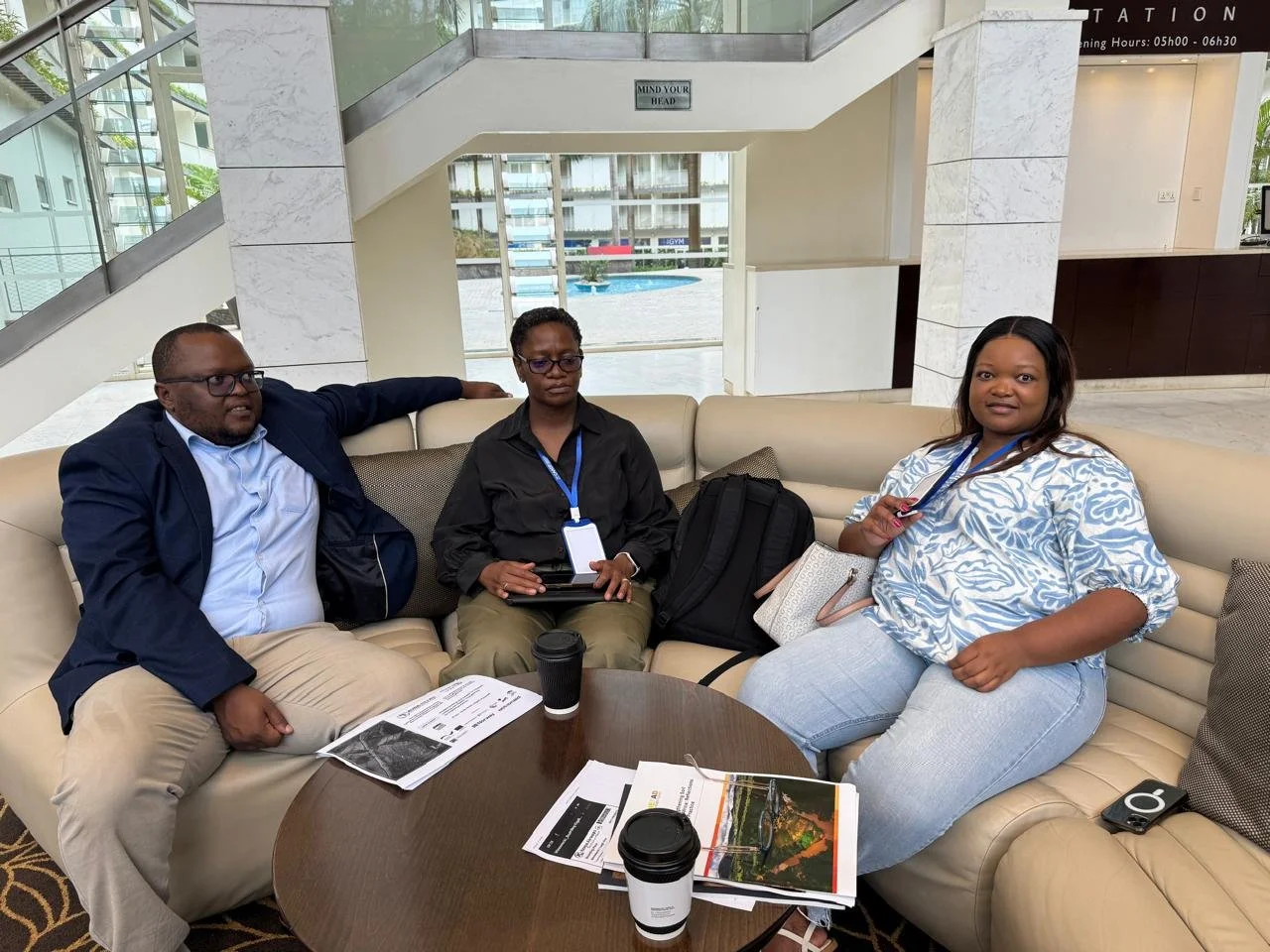


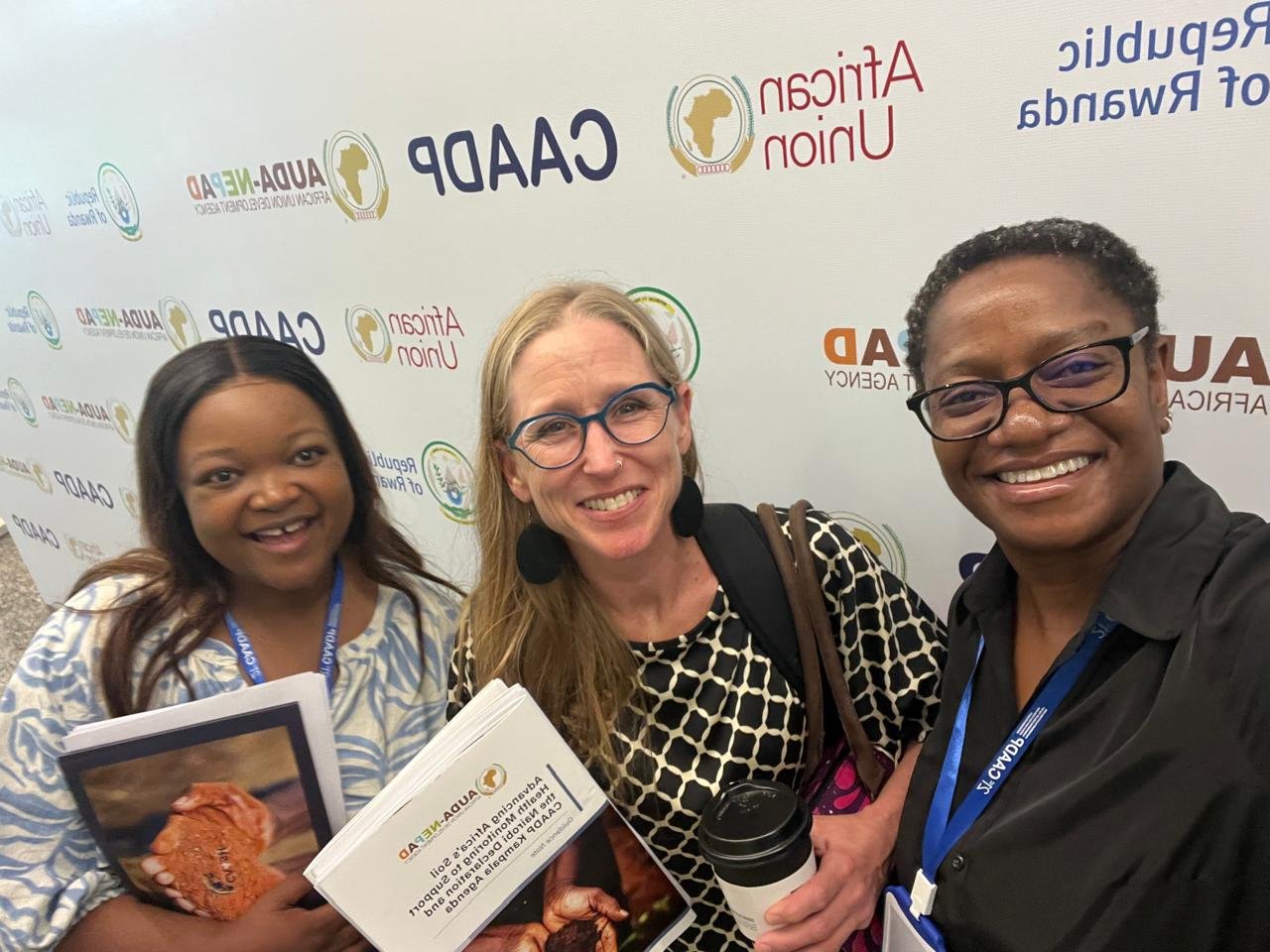
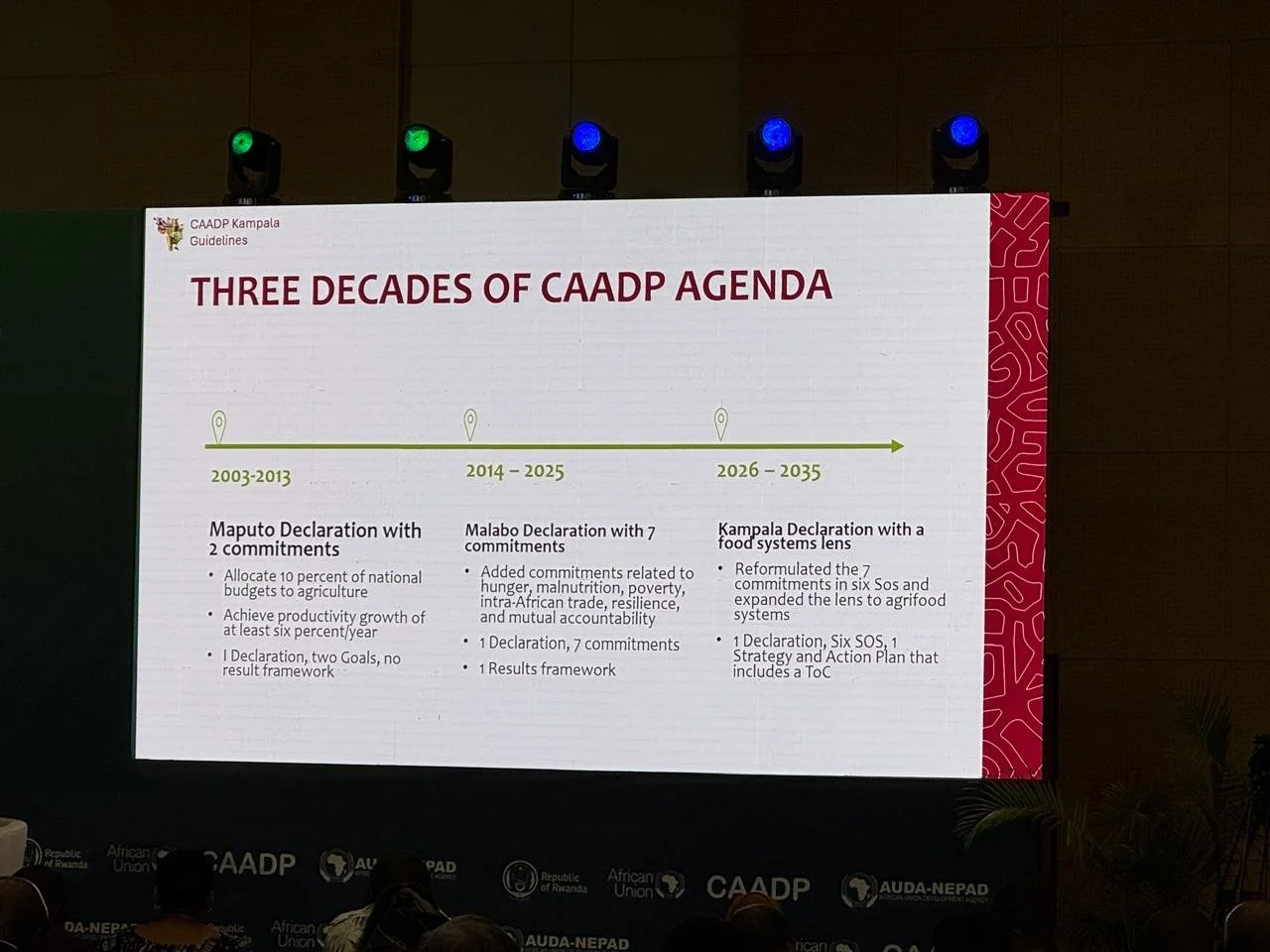


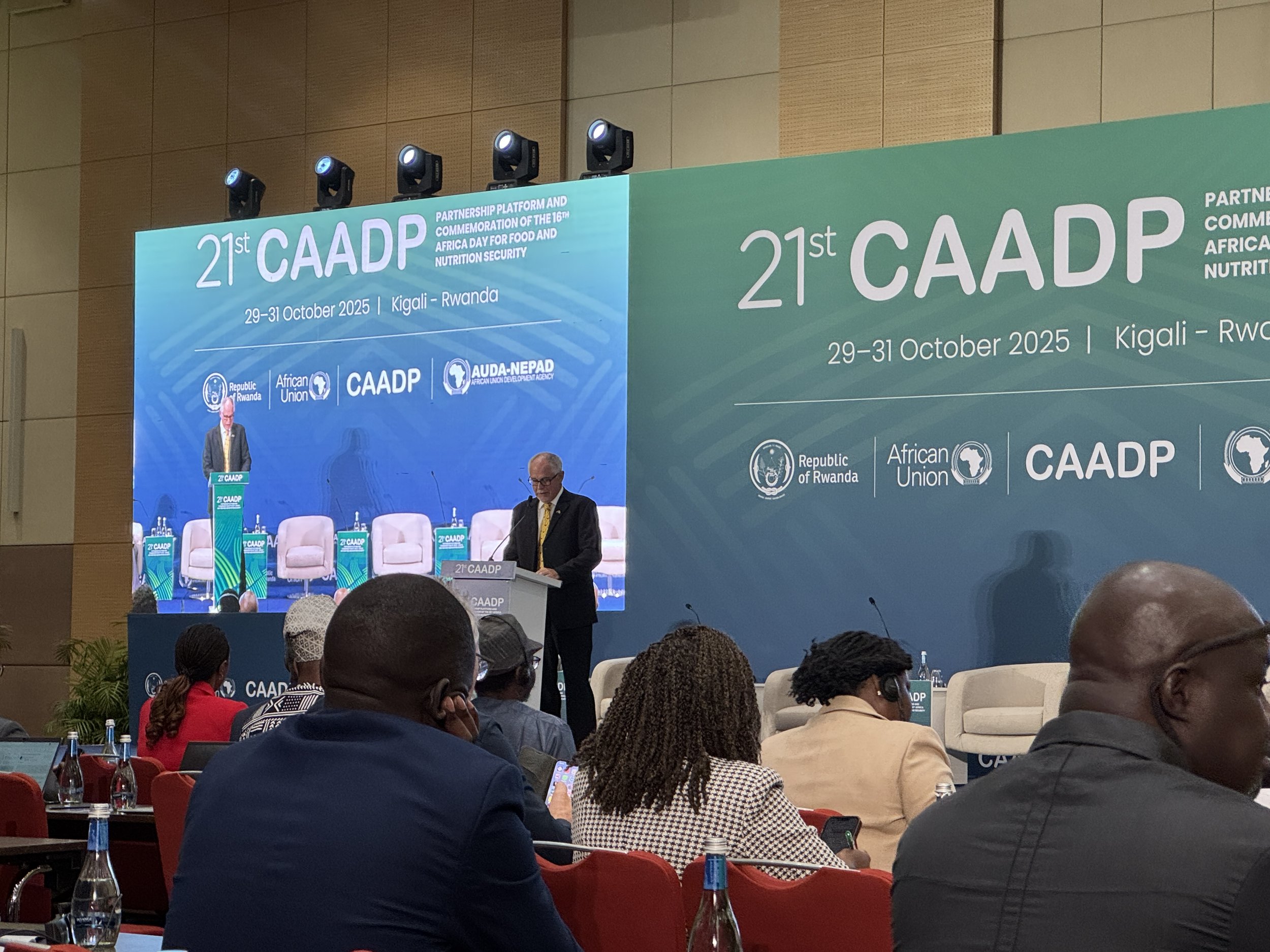



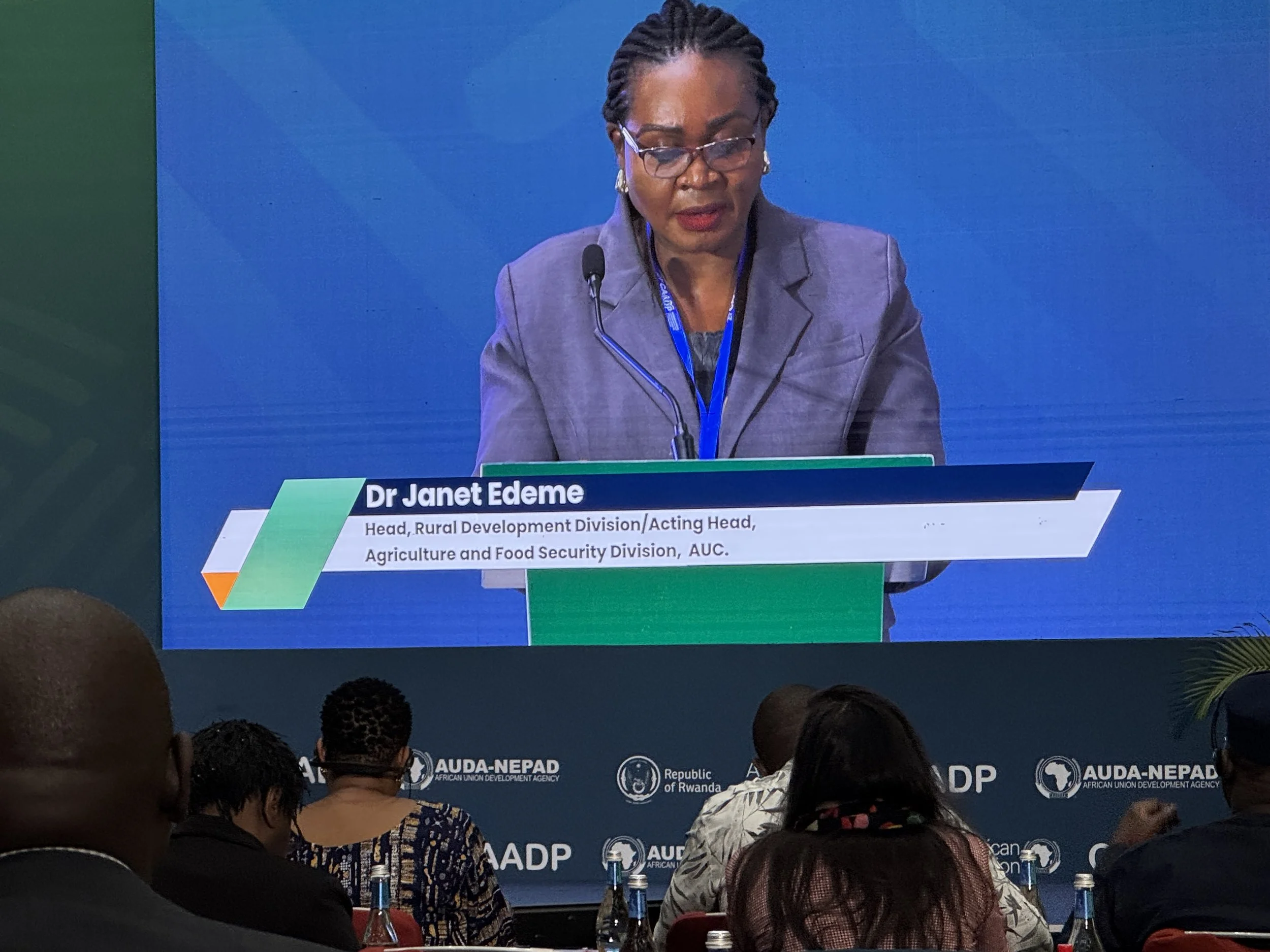

Dr. Teklu Erkossa (Program Manager for Soil Health Project, GIZ Ethiopia) shared key insights from the development of the EthioSIS (Ethiopian Soil Information System) platform, emphasizing the need for evidence to inform decision-making. Key takeaways from the Ethiopian experience include: the importance of mobilizing legacy data, developing decision support tools and building partnerships. The next step in the development of the tool will also include a dashboard feature and interactive advisory tools that can reach farmers on the ground.
Presenting on their experiences domesticating the Kenyan and Nigerian AFSH Action Plans, Alice Nyaga (Agriculture Engineer, Ministry of Agriculture and Livestock Development in Kenya) and Blessing Akhile (Food and Agriculture Programme Advisor, Action Aid Nigeria) reported that the two countries are closing in on the launch of their official plans. In both cases, the speakers underscored the imperative for multistakeholder action at all stages of the process, especially farmers, as they are the end-implementers of the changes being proposed.
Continental oversight efforts from AUDA-NEPAD and the CAADP Soil Health Task Force are key for driving soil health in the continental agenda. Portia Phohlo (Co-Chair of the Soil Health Task Force) described the goal of the Soil Health Task Force as developing "a continentally coordinated but locally driven system.” Manyewu Mutamba (Senior Program Officer, Food Security, AUDA-NEPAD), detailed the role of AUDA-NEPAD in coordinating member states, multistakeholder actors, and regional hubs toward effective implementation of these initiatives.
“I’ve never seen this much interest [from the soil community] ... I see and I feel a stronger integration of the soil’s agenda”
While energy is high, now is the time to amp up efforts and really drive these processes forward. Yemisrach Gatachew (African Union Commission) delivered the closing remarks to summarize the session, emphasizing the need for continued support, enthusiasm and action. She commended member states for "taking ownership by contextualizing the continental action plan on fertilizer and soil health to their national priorities." She also emphasized the necessity of tracking progress systematically, stating, "We cannot implement what we cannot measure and measuring progress is just as critical as the actions we take to restore Africa's soil."
She concluded with a call for continued momentum: "Let us continue to build this momentum, strengthening partnerships, deepening technical collaboration, and staying grounded in practical and scalable solutions".
Ultimately, she stated, "We are not just monitoring soil health. We are nurturing the very foundation of Africa's agricultural future for food and nutrition security."





